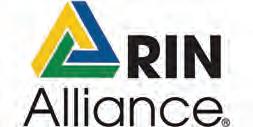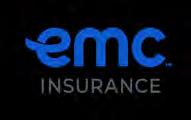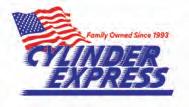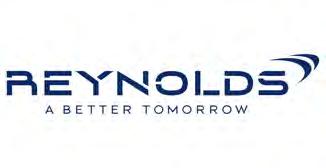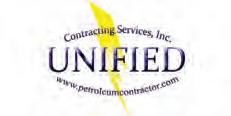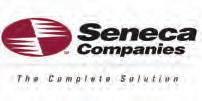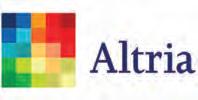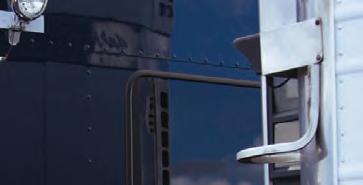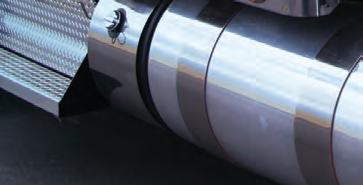THE VOICE AND RESOURCE FOR IOWA’S FUEL INDUSTRY

2024 YEAR IN REVIEW pg. 4
LOOKING FORWARD TO 2025 pg. 16
SHAPING OUR INDUSTRY’S FUTURE pg. 22
LEGISLATIVE PRIORITIES pg. 32
VOLUME 79, NO.6 2024 NOV / OCT


2024 YEAR IN REVIEW pg. 4
LOOKING FORWARD TO 2025 pg. 16
SHAPING OUR INDUSTRY’S FUTURE pg. 22
LEGISLATIVE PRIORITIES pg. 32
VOLUME 79, NO.6 2024 NOV / OCT
Dear FUELIowa Members,
As we reflect on 2024, I am filled with gratitude for the incredible achievements we have made together, and I thank you for the opportunity to serve as Chair this past year.
In this issue, you will see our Year in Review which highlights some of our accomplishments this year, including an increase in financial support for fueling infrastructure, property tax relief on above ground storage tanks, and a vaping registry to name a few.
We also had a record year at the UMCS show, a near record safety dividend from EMC Insurance, and we have hit our membership goals including thirty new member companies joining FUELIowa since July. We have put a strong team in place and with growing engagement, we will reach new heights.
We are currently conducting our Legislator Lunch & Learns throughout the state so legislators can hear first-hand the challenges and opportunities in our businesses. I encourage you to attend and engage.
Also, be sure to cast your vote in our upcoming election of the FUELIowa Board of Directors. We are blessed to have so many dedicated leaders willing to invest their time and talent to serve our great industry.
Looking ahead, I am excited about the potential for even greater achievements in the coming year. Together, we can build on our successes, tackle new challenges, and expand our impact.
Together We FUELIowa

Chris Biellier Associate Director Seneca Companies Davenport | 563-332-8000
Chad Besch Director NEW Cooperative Algona | 515-295-2741
Don Burd Director Otter Creek Country Store Cedar Rapids | 319-533-1825
Tia Eischeid Director Al’s Corner Oil Co Carroll | 712-673-2723
Wade Fowler Associate Director Core-Mark Midcontinent, Inc. DBA Farner-Bocken Carroll | 641-777-0308
Cara Ingle Associate Director Unified Contracting Services Des Moines | 515-266-5700




Keith Olsen Chair Olsen Fuel Supply Atlantic 712-243-2340
Tessa Anderson Vice Chair Rainbo Oil Dubuque 563- 526-1179
Nate Lincoln Treasurer Lincoln Farm & Home Service LLC Glenwood (712) 527-4833
Dave Reif Immediate Past Chair Reif Oil Company Burlington 319-752-9809
Dennis Jaeger Director Mulgrew Oil Dubuque | 563-845-8359
Scott Moore Director Western Oil, Inc Omaha | 402-618-2238
Scott Richardson Director Key Cooperative Roland | 515-291-0623
Jason Stauffer Director NEWCENTURY FS Ames | 515-370-3127


By Sarah Bowman Director, Communications & Events FUELIowa
As we reflect on the past year, we are excited to highlight the many milestones and accomplishments achieved by FUELIowa. This year has been marked by growth, innovation, and a deepening commitment to supporting the energy industry’s future through collaboration, education, and sustainability.
As we close out a year of exceptional achievement, we are more focused than ever on continuing our mission to drive industry progress. Looking ahead to 2025, we are committed to expanding our advocacy efforts, furthering our initiatives, and continuing to provide the educational resources and networking opportunities our members need to succeed in an increasingly complex energy environment.
The success of this year wouldn’t have been possible without the support and dedication of our members, partners, and staff. Together, we have achieved significant milestones, and we look forward to a future full of opportunity and growth.
Thank you for being part of the FUELIowa journey. Here’s to another successful year ahead, filled with progress, innovation, and collaboration. The following is a collection of articles showcasing our educational, networking, and growth through 2024.
#Together We FUELIowa
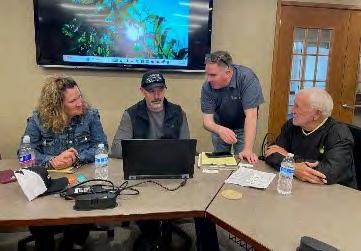
FUELIowa Members Learn to Apply for Millions in USDA Grants for the Fuel Industry
FUELIowa partnered with Growth Energy and Iowa Corn to present a webinar on how to navigate the application process for the grants available to members.
On Tuesday, March 19, FUELIowa members attended a grant workday held at Iowa Corn offices. "This process has a great learning curve, but we're learning an awful lot," said Jerry Fratzke, owner of Pronto Markets. Judy Barnes and Brooke Lilley with Jet Gas participated, with Judy sharing, "This would've been great back in
2022. I spent days, evenings, hours upon hours to get this done."
Thank you to GrowthEnergy and Iowa Corn for hosting the webinar and workshop. Together We FUELIowa.

FUELIowa's Lunch and Learn series continued its success in January and February, with engaging conversations between members, legislators, and staff. We're thrilled to report that our new Storm Lake location was wellreceived. A big thank you to all attendees and the legislators who made time for these important meetings.
Your participation reinforces the value of our legislative outreach efforts and fosters meaningful connections and advances our mission to support Iowa's fuel industry.
On March 7, FUELIowa and the Iowa Corn Growers Association joined forces to hold a series of impactful meetings at the Iowa State Capitol with legislative leadership and the Governor's Staff. This strategic collaboration showcases the strength of industry partnerships in advancing shared priorities.
Thank you to all who participated in these important discussions.
Together We FUELIowa.
March
FUELIowa and EMC Announce $1.49 Million Dividend for Their Insureds
FUELIowa & EMC are happy to announce a $1.49 Million dividend paid to participants who take advantage of our Safety Dividend Program for Property & Casualty Insurance.

The 2023 dividend of $1.49 million is the highest in the past 5 years and up more than 35% over last year.

In 2021, a one time bonus was paid to members.
The FUELIowa/EMC program is tailored specifically to fuel marketers and the convenience store industry and is backed by EMC, Best Rated “A” (excellent) rated company as of 11/3/2023.
In addition to great coverage, service, and financial strength you can count on, the program can be accessed through any local agent representing EMC with strong support from our managing general agent, AssuredPartners.
EMC shares the underwriting profits with their insureds contractually unlike other carriers which prevents promised discounts from vanishing once losses are incurred.
Henry Jessen from Johnson Oil/ Cylinder Express stated "Our company has been a member of FUELIowa since 1949, along with over 30 years of having EMC as our insurance provider. During the past 30 years I have personally seen the value of being a part of these organizations. Each year we
receive a dividend check, which helps off-set the primary cost for our insurance through EMC. Remember, to get the dividend check and other benefits you must be a member of FUELIowa and have your insurance through EMC. EMC is also very good with risk management to help keep our company safe , which helps keep our claims down. If you don't have EMC insurance,
I highly recommend you contact Fuel Iowa or your insurance agent to get signed up, otherwise you're missing the boat."
-Henry Jessen, Johnson Oil/Cylinder Express
Tessa Anderson explained, “Rainbo Oil Company has been insured by EMC Insurance for more than 35 years. This year marks the 20th consecutive year in which we have received a safety dividend check from FUELIowa, previously PMCI.
EMC is superb to work with whether handling a WC, property, or vehicle claim; we can be assured that the claim is going to be handled timely and professionally. The umbrella liability coverage going over top of the pollution coverage is an area many insurance companies elect not to cover for those in the fuel industry, but EMC continues to provide us that coverage. They also offer many training programs available that are very advantageous to us.
We are very pleased with the coverage that EMC provides and we love the fact that through our focus on safety we are rewarded with a dividend check.”
-Tessa Anderson, Rainbo Oil
Congratulations to all FUELIowa participants for their outstanding safety practices and continuing education that helped drive this amazing dividend. FUELIowa has mailed all the checks out to the participants in the program.
Tailored coverage - Coverage tailored to the fuel marketer and convenience store industry:
o Property
Blanket building and personal property coverage per location
Automatic limit increases to help offset inflation.
Consigned property
Tank leakage – loss of the insured’s product due to an above ground tank leak.
Leased and loaned tanks and equipment – property coverage for the insured’s tanks and equipment at a non-owned location while under lease or loan.
Foam and Chemical Fire Department Charges – expense accessed to the insured for the use of foam or chemicals in response to a fire loss.
Lessee Change Over Coverage – property coverage on locations where the ownership or responsibility for property insurance reverts to the Insured.
Security Guard Charges when necessary to protect covered property after a covered loss.
Loss to Inventory from Spoilage as a result of equipment breakdown or electrical disturbance.
Utility Interruption resulting in loss of business income or extra expense
Personal property of others
Optional
Pollutant cleanup and removal above ground storage tanks –cleanup expense from covered perils
Unauthorized Use of Fuel Access Card – loss of product that the insured is responsible due to a terminal access card theft.
Gas or Oil Contamination – loss of the insured’s product due to a surface water contamination.
Erroneous Delivery – loss of the insured’s product due to a mis-delivery of petroleum products.
Equipment breakdown
o General Liability
Liability coverage for the mis-delivery of liquid product
Medical payments coverage for bodily injury to a customer arising out of the customer dispensing petroleum from a petroleum pump at the insured’s premises.
Volunteers as insureds
Contractual liability for automatic/keep-fill agreements
Contractual liability for terminal access agreements
Automatic Additional Insured status where required by written contract
Optional
Liquor liability
Employee Benefits Liability
Employment Practices Liability
o Auto Liability
By endorsement
Pollution Liability – broadened coverage for covered autos.
Employees as insureds
Employee hired autos
Automatic additional insured where required by written contract
Auto Loan or lease coverage for early termination fees/penalties
Common occurrence deductible for two or more covered autos
Combined occurrence deductible for physical damage loss to covered autos and cargo.
New vehicle replacement cost on private passenger vehicles and vehicles of GVW of 20,000 or less.
o Workers’ Compensation
o Commercial umbrella
o Multi-line retention option – obtain premium credits for the insured assuming a large, self-insured retention that applies to multiple lines of insurance (commercial property, business owners’ coverage, inland marine, crime, general liability, and commercial auto).
o Loss control - support, both on-site and on-line, to help insureds to prevent losses whether their operations focus on bulk fuel deliveries or conveniences store
Ergonomic evaluations
Slip and Fall prevention training
Hazard Control Assessments
Injury management programs
On-line safety training
Free “Duty to Warn” services for insureds with propane sales and distribution through “P3 Propane Safety”, a compliance and risk management company.
o Claims
Reporting - Policyholders have claim reporting options available to them through the EMC agent, online, or by phone using EMC’s toll-free claims reporting hotline,
Workers’ compensation – Medical management services
· EMC OnCall Nurse
· Medical Bill Review
· Pharmacy benefits management
· Utilization review
· Case Management
· Rehabilitation services

The 2024 UMCS show was a huge success – thank you to the sponsors, exhibitors, attendees, committee members and staff who made it such an incredible event. The use of the mobile app was up over the previous years, and 98% of the people who downloaded the app, used it to plan their convention, message attendees,

and share pictures. Attendees were excited for the return of casino night, to hear from EMA President Rob Underwood, Keynote Speaker Frank Kelly, Featured Speaker John Eichberger, and the show floor was BUSY at all times!
In the two weeks leading up to UMCS, staff pivoted and moved
the auction online and the money raised by FUELIowa for EMA doubled. These funds will be used to strengthen our voice with the Iowa delegation at the federal level.
We’re already looking forward to UMCS 2025 – Save the Dates! April 7-9, 2025
FUELIowa Teams Up with Americans for Prosperity (AFP) to Fuel Iowans
At a small bp station near the southside of downtown Des Moines, FUELIowa teamed up with Americans for Prosperity (AFP) on May 31 to give Iowans a break in fuel prices.

Since 1981, FUELIowa (then PMCI) has participated in a benefit for Camp Courageous – it all goes back to hearing about the financial struggles, and touring the camp. Seeing the camp with their own eyes, the PMCI board of directors knew they had to do something to assist, and the FUELIowa’s Benefit for Camp Courageous was born.
This year was SOLD OUT! Thank you so much to our members for stepping in and teeing off for the kids. Once again, the weather cooperated, members enjoyed networking, playing golf, an auction and prime rib dinner at the end of the day.
The price per gallon dropped from $3.23 a gallon to $1.63 a gallon, reflecting prices from only 39 months in the past. The line curved around two city blocks, with many thankful customers from all over the metro Des Moines area.
While helping to pump fuel, FUELIowa staff and former board member Glenn Haskin also handed out cold bottles of water, and
visited with consumers. Iowa Congressman Zach Nunn joined the group, even pumping a few tanks for grateful consumers.
In only two hours, 2, 145 gallons of fuel were pumped and sold. It goes to show how important affordable liquid fuels are to all Iowans.
Together, We FUELIowa.





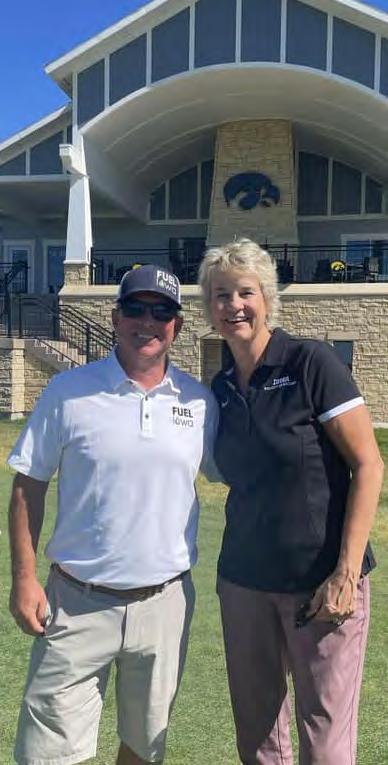
Glenn Hasken, Camp Courageous Board Member, and past FUELIowa Chair auctioned off 5 limited edition Camp Courageous/Fuel Iowa 2021 Jeep Gladiator Rubicon (donated by Dave Bell, SpecCast, Dyersville, IA) that University of Iowa Women’s Basketball Coach, Lisa Bluder, had signed earlier in the day. Each vehicle went for $260! Thank you to Coach Bluder and members of the winning Iowa Hawkeye’s basketball team for stopping by and visiting with FUELIowa members!

Camp Courageous CEO, Charlie Baker said, “It was fun to have Sydney Affolter from this year’s University of Iowa Women’s Basketball Team attend the 2024 FUELIowa Golf Benefit for Camp Courageous.”

Pictured, long time FUELIowa member, Larry Bentler of Fairfield, IA gives Sydney Affolter some pointers on her putting.
Charlie added, “Sydney is a first class individual and we wish her the very best! Larry’s Dad, LeRoy Bentler, was among the first Petroleum Marketers to visit Camp Courageous and decide to take Camp under their wing in 1981… for which Camp Courageous has been forever grateful!”
Mark your calendars for June 9, 2025 for the next Benefit for Camp Courageous at Finkbine Golf Course in Iowa City, Iowa!
FUELIowa held its annual PAC fundraiser SUMMERFEST in Okoboji on August 1 and 2. The event was a huge success, with over 125 attendees. During the event, a total of over $20,000 was raised that will be used to help support the Political Action Committee
(PAC) for FUELIowa.
This year, we introduced an online auction, which was a favorite for many in attendance. The ability to preview the auction items before the event was a big selling point for attendees. As a result of the auction itself, more than $9,000 was raised. We are thrilled with the success of the auction and look forward to hosting another one next year. Thank you to all of the companies who donated to the auction!
FUELIowa was thankful to have Iowa's Attorney General Brenna Bird speak at SUMMERFEST, explaining what her office does (and doesn't) handle, and answering questions from members. Attorney General Bird also provided advice on how to protect oneself from scams, and how to recognize signs of fraud. She was a great resource for all attendees and great asset to FUELIowa's SUMMERFEST event.



Entertainment by Tim Gabrielson during dinner was well received. The combination of his comedy and magic had the audience in stitches. We're still wondering how he and Tessa Anderson calculated that number!!
The Annual Bags Tournament is always a draw, but this year was the introduction of the traveling bags trophy, a wrestling style belt reminiscent of WWE days. It did not take long for registrations to begin after the announcement of the belt was made. A hard fought battle was won by Team Yant (Jared Baker and Scott Spencer) who donated their winning prize back to the PAC. Thank you for your generosity!

Bright and early on Friday morning, golfers arrived at Brooks Golf Club for a round of golf and networking. Thanks to sponsors, we were able to offer a hole in one contest for a GMC 1500 Sierra truck. While many landed on the green, no one was able to make the hole in one. That didn't damper spirits, with everyone reporting a great game with great weather. Gathering at the "19th hole" clubhouse, the winning team was announced, and once again, it was team from MAST ATM taking home the traveling trophy.
Thank you to all of our sponsors and attendees. Without you, we couldn't continue this great event.
Together, We FUELIowa!
By Gary Koerner, CEO

It is a privilege to step in as the new CEO of FUELIowa, an organization that I have had the honor of serving for nearly nine years, initially as EVP and then as CFO and I am
excited to get to work in my new role.
I am an Iowa native and managed to convince my wife of 28 years (Gail) to move to Iowa from the Chicago area and start a family. We have four children, Jack, Caroline, Jane, and Matthew, and recently became empty nesters with our youngest off to college this fall.
Prior to joining FUELIowa (at the time PMCI), I spent nearly 20 years at Meredith Corporation, one of the largest publishing houses in the world. PMCI leadership at the time recognized the value in my experience, even though I was not from the fuel and convenience industry. What I brought to the table was a diverse background in leading marketing, business development and finance teams on some of the largest magazine brands in the world, like Better Homes & Gardens and Family Circle to name a few, selling our products to retail giants such as Wal-Mart, Kroger, and The Home Depot.
Eventually, I became Executive Director of Retail, overseeing the marketing, sales, and distribution of Meredith’s entire magazine portfolio across North America.
Since joining FUELIowa, I have
been proud to work alongside our team to rebrand the organization to what it is today. We also rebranded the PMCI Trust to HEALTHAlliance and focused heavily on streamlining operations, reinvesting those savings into our advocacy efforts. Our goal has always been to strengthen FUELIowa and position it for longterm success.
Over the past 9 years I have had the privilege of getting involved with all aspects of our organization—from the EMC property and casualty program and HEALTHAlliance, to the FUELIowa PAC and everything in between. Along the way, I have
met so many incredible members of FUELIowa, and I can honestly say I have enjoyed getting to know all of you much more than many of my old business contacts in New York! All kidding aside, this work has been energizing and fun.
Fast forward to today, and I am honored to step into the role of CEO. I am fortunate to be leading a talented team, working with a dedicated Board of Directors and Board of Trustees, and serving our incredible members across the state.
FUELIowa has so much to be proud of. We represent close to 99% of the fuel gallons sold in

JOHN MAYNES, President, Government Affairs
John has worked in the fuel industry throughout his career, joining FUELIowa in 2008. His primary areas of responsibility include federal and state advocacy as well as serving the day-to-day consulting needs of FUELIowa’s small business members.
John serves on the Board of Directors for the Iowa Renewable Fuel Infrastructure Grant Program and served for five years on the Iowa Comprehensive Petroleum Underground Storage Tank Fund Board of Directors before its sunset in 2024. In addition to those roles, join serves as an advisory member of the Energy Marketers of America (EMA)
Iowa, offering every type of fuel customers need. We serve Iowans in all 99 counties—urban and rural—ensuring that farmers get the fuel they need to power our agriculture economy and that consumers have access to fresh food and convenience items every day.
Liquid fuels power our economy, and I look forward to leading FUELIowa as we continue to evolve and thrive for another 90 years. Thank you for being a part of this journey with us.
Together, We Fuel Iowa! Gary
Motor Fuels Committee, EMA Underground Storage Tanks Taskforce, and is a member of the American Society For Testing and Materials serving on the Environmental Assessment, Risk Management, and Corrective Action Committee.
John earned a Bachelor of Arts Degree in History and English and his Juris Doctor from the University of South Dakota. John and his wife Leslie reside in Norwalk, Iowa along with their sons Sully and Will.



JIM EWING, Director, Membership & Business Services
Jim serves as Director, Membership & Business Services. In this role, Jim manages all operational activities related to membership retention and recruitment, business services programs, sponsorship and advertising.
Prior to FUELIowa, Jim was an Energy Account Manager with GROWMARK
Energy covering eastern Iowa, Illinois and eastern Missouri. He also worked eleven years at Solar Transport in various recruiting and sales management roles.
Jim earned his undergraduate degree from the University of Northern Iowa. He and his wife Amanda have three children residing in Norwalk.
SARAH BOWMAN, Director, Communications & Events
MARC BELTRAME, Lobbyist
Sarah serves as Director, Communications & Events, responsible for the bi-monthly magazine, social media, press releases, the weekly Insider, and events.
Prior to FUELIowa, Sarah served as Director of Industry Affairs with Iowa Poultry Association, Communications Director for Agribusiness Association of
Marc T. Beltrame brings 18 years of legal experience and a bipartisan approach to government relations advocacy both in Iowa and Washington D.C. Marc delivers best-in-class access to decisionmakers and a strong reputation for handling some of the biggest, most challenging issues with a focus on the gaming, agribusiness financial services, and technology sectors. Prior to founding the Beltrame Law Firm, Marc had the distinction of pursuing a career in both government and politics.

DAVID PECK, Associate lobbyist
David Peck joins the Beltrame Law firm following a career as Infantryman. A graduate of the United States Army’s prestigious Ranger School, David served his country from 2010 - 2016. Following his career in the armed services, David received an undergraduate degree from Iowa State University with an emphasis in private land management. Following his undergraduate studies, David received his Juris Doctorate
Iowa, and multiple sessions in the Iowa Legislature clerking for Senators and Representatives.
Sarah earned her Bachelor of Science degree in English from Iowa State University. She and her husband David live in Clive with their five children, William, Sean, Brendan, Henry and Mary Elouise.
In addition to serving as a consultant to numerous local, state and congressional campaigns over the years, Marc was the state director and senior advisor to former U.S. Senator Christopher J. Dodd’s presidential campaign in Iowa during the Iowa Caucus. Marc also has extensive operational experience with a number of federal government processes and issues having worked as the Deputy Chief of Staff to former U.S. Congressman Leonard Boswell.
at Drake University. He obtained a Legislative Practice Certificate for his extensive service at the Iowa Capitol, including as an intern to then State Senator, Congressman Zach Nunn.
Working closely with clients across diverse business and non-profit sectors, David plays a pivotal role in helping to identify and articulate their legislative priorities.

FUELIowa's Drug, Alcohol Testing & Clearinghouse Program is a great solution to the FMCSA CDL Clearinghouse rule. This integrated program leverages the buying power of FUELIowa members and our expertise to provide a low cost, seamless solution to help you fully comply with the regulation.
You can use FUELIowa’s program for Drug & Alcohol Testing only, or you can expand it to include the CDL Clearinghouse solution – your choice.
Services include pre-employment testing, and random selection as part of a FUELIowa consortium of drivers.
We’ve negotiated low rates for approved chain of custody qualified testing at convenient locations for you, plus you’ll have a FUELIowa expert to help you manage your program.
FUELIowa has been managing Drug & Alcohol Testing for our members since 1990.
It’s simple. You just register with the clearinghouse and appoint FUELIowa as your third party administrator. FUELIowa will then manage the clearinghouse, and conduct your queries. Plus, an expert at FUELIowa is just a phone call away.
Note: Your company must participate in the Drug & Alcohol Testing Program to be part of the Clearinghouse Solution.
Focus on driving your business and let FUELIowa help you manage your compliance. FUELIowa Drug, Alcohol Testing & Clearinghouse Program will save your company significant time and money and allow you to do what you do best. Let FUELIowa be your safety & compliance expert.
Contact FUELIowa’s Jim Ewing at 515-421-4596 or jim@fueliowa.com to sign up or learn more.
*See pricing on back
Annual Administrative Fee
$150 / year
Lab-Based Drug or Alcohol Test
$41 / test
Annual Administrative Fee
$100 / year
Additional Per Query Charge
$10 per annual query



Note: The Clearinghouse Solution pricing is an annual fee that covers the administrative time for FUELIowa to set you up in the clearinghouse and perform the queries for you. It is required by law for you to purchase a “Query Bundle” directly from the clearinghouse for FUELIowa to use as your 3rd party administrator. Sounds
Driver and/or Employee Data Collection
-First and Last Name (as it appears on drivers license)
-Drivers License Number
-Date of Birth
-Issuing State
Schedule a 20 Minute Set up Call 515-421-4596

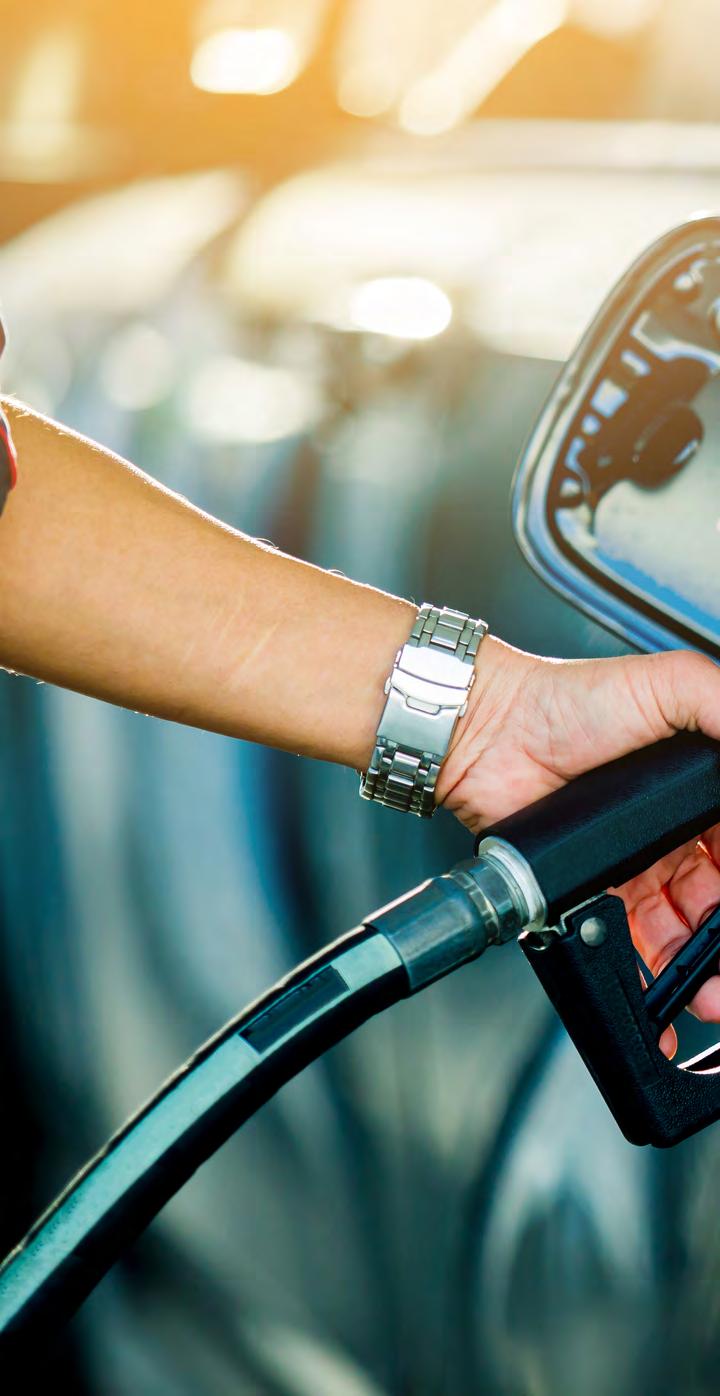

By John Maynes, President, Government Affairs, FUELIowa
Each year, as we approach the end of the calendar year and the holiday season descends upon us, my calendar reminds me to prepare an article highlighting key areas impacting the fuel industry in the upcoming calendar year. Like clockwork, this reminder leads me to declare, where has 2024 gone and how is the Thanksgiving holiday nearly upon us?
Through the following article, I’ll attempt to address some common questions I receive from FUELIowa members as we wind down 2024 and get prepared for 2025. Additionally, I will highlight certain legislative and policy initiatives that are set to take effect in 2025. As always, as you browse this article, if the text triggers a question in your mind, please contact me and we can work together to find you an answer to your question.
Iowa’s motor fuel excise tax rates are set by statute. With the state of Iowa’s fiscal year running from July 1 – June 30, motor fuel excise tax rates will not change on January 1, 2025. If a change to Iowa’s motor fuel excise tax rate
were to occur, the change would be communicated prior to July 1, 2025, in preparation for the start of the next state fiscal year (State FY – 26).
Because Iowa provides a lucrative
excise tax subsidy for gasoline ethanol blends containing 15 percent or more ethanol and biodiesel blends containing 20 percent or more biodiesel, it’s likely we will see an excise tax rate implemented on July 1, 2025. Iowa uses a graduated formula to set
excise tax rates for these preferred biofuel blends. As E15+ and B20+ blends gain market share, the excise tax differential between these blends and other motor fuels are set to gradually decrease.
2025 Iowa Motor Fuel Tax Credits
per Kilowatt Hour
*Excise rates are assessed per gallon or on a per gallon equivalent
On January 1, 2023, a provision contained in Iowa’s E15 Access Mandate on fuel retailers became law, requiring the mandatory reporting of annual fuel sales by Iowa’s fuel retailers. Accompanying the mandatory reporting change, Iowa’s E15 Access Mandate went so far to create statutory penalties targeting fuel retailers for failing to comply with the annual request for gallon
sales sent to fuel retailers by the Iowa Department of Revenue. Although enforcement to date has been sporadic, special interest groups like the Iowa Renewable Fuels Association who pushed for mandatory reporting and penalties have been vocal with the Department of Revenue about enforcement. On or around January 1, 2025, FUELIowa members retailing motor fuel should be on the lookout for an electronic request from the Iowa
Department of Revenue for your calendar year 2024 fuel sales. All sales will be required to be reported through the Govconnect Iowa online filing portal.
In Iowa, a retail sale is any sale to an end-user made through a licensed meter. This includes brickand-mortar gas stations along with tankwagon and even transport deliveries to end-users in Iowa.
Dating back to 2007, Iowa’s approach to the growth of retail biofuel sales has included a menu of fully refundable state income tax credits designed to incentivize businesses to invest in the infrastructure required to sell biofuels and draw down the price of these homegrown products to incentivize consumers to purchase them. The tax credit structure implemented in Iowa has been a great success. Unlike federal incentives, where upstream parties
use taxpayer subsidized credits to build margin, Iowa’s tax credits are finding their way to our street signs and reducing the cost of biofuel blends while simultaneously incentivizing consumers to purchase our homegrown products.
The 2025 Iowa Legislative Session will see Iowa’s biofuel tax credits at the forefront of policy discussions. Iowa’s E15 tax credit of $0.09 per gallon, implemented along with
Gasoline Blends
Gasoline (E70 – E85)
B11 – B19 Diesel Blends
B20 – B29 Diesel Blends
B30+ Diesel Blends
All Iowa motor fuel tax credits are fully refundable state income tax credits available to retailers. As a reminder, a retail sale in Iowa eligible for a tax credit includes sales made at a brick-and-mortar gas stations as well as sales to end-users from a tankwagon or transport vehicle.
The $1.00 per gallon federal biodiesel blender’s tax credit is set to expire on January 1, 2025. The credit is slated to be replaced with a new credit available for producers of biodiesel. Over the last several months, fuel industry stakeholders have united to renew the federal biodiesel blender’s credit and provide biodiesel
blenders with certainty moving forward. With the chaos and uncertainty of the election season now behind us, I am optimistic policy items like the extension of the biodiesel blender’s credit will be addressed. Over the years, we have seen the biodiesel tax credit extended in the waning hours of a calendar year, or alternatively, we have seen the credit extended and made retroactive. I think both options are on the table as 2024 winds to a close. FUELIowa will be working closely with Iowa’s
Iowa’s E15 Access Mandate in 2022, is set to expire on January 1, 2026, making Iowa’s 2025 Legislative Session the final session to extend the credit before it expires. Although Iowa’s package of biodiesel tax credits is not set to expire until January 1, 2028, the success of these tax credits are of equal importance and pairing the two together with the same expiration timeline is of common interest among all stakeholders in the liquid fuel industry.
$0.07
$0.10
delegation and our partners at the Energy Marketers of America to keep you updated with the latest news on this credit. FUELIowa plans to be in Washington, D.C. to visit with our delegation on this issue and more on December 17.
Since passage in 2022, numerous aspects of Iowa’s 46-page E15 Access Mandate have taken effect. As we turn the page on 2024, 2025 will mark the final year before the state of Iowa requires a licensed fuel retailer to offer E15 from a minimum of 1 dispenser or face penalties enforced by the Iowa Department of Agriculture and Land Stewardship.
According to the most recent data available from the Iowa Department of Revenue, 489 of Iowa’s 1879 retail motor fuel stations are currently offering E15. That number has likely grown since the most recent report from the Iowa Department of Revenue but for many, 2025 marks the final year before enforcement of Iowa’s unprecedented law is set to take effect.
Iowa’s E15 Access Mandate affords three waivers for fuel retailers seeking relief from Iowa’s E15 Access Mandate. If a retailer can prove that their location can fit within the parameters of any of three waivers, they should be granted a waiver from the requirements of the law. Waivers granted to an eligible retailer are good through 2041. All waiver forms may be found on the Iowa Department of Agriculture website searching for E15 Access Standard.
sales of its licensees. Unfortunately, it appears that in the haste to pass the E15 Access Mandate, proponents of the law failed to consult with the Department on the type of records they maintain. If you encounter challenges with your waiver, please contact the FUELIowa office and we will work with you to assist with the verification of your gallons and your pursuit of a small retailer waiver.
By statute, Iowa expressly exempts three classes of tanks from compliance with Iowa’s E15 Access Mandate. If your complete set of gasoline storage tanks at your facility fall within any of three categories outlined below, you may apply for a waiver from Iowa’s E15 Access Mandate based on the age of your tank. Your site is due for consideration of a tank age waiver if:
The small retailer waiver is available to a fuel retailer who sold less than 300,000 gallons of gasoline (all grades combined) in calendar years 2020, 2021, and 2022. Sales are verified and averaged using all three years.
In what would otherwise seem to be a very transparent waiver, we have discovered that the Iowa Department of Revenue has had challenges verifying the gallon
Iowa’s E15 Access Mandate cost waiver analyzes the cost imposed on a retailer when making E15 available at a single fueling position. Although UST systems are not set up to use a single tank to supply a single dispenser, the law and accompanying cost waiver were tied to making E15 available at a single dispenser to minimize the perception of cost mandated upon a fuel retailer while minimizing the number of retailers eligible for the waiver.
Working in partnership with a UST professional licensed by the state of Iowa, you will review the compatibility of your existing infrastructure for the sale of E15 and determine your infrastructure replacement cost to make E15 available at a single dispenser. If your out-of-pocket cost exceeds $106,000, you are eligible to pursue a cost-based waiver.
1. Each gasoline storage tank not constructed of fiber glass (steel) was installed during or prior to 1985.
2. Each gasoline storage tank constructed of fiber glass was installed during or prior to the following years:
a. For a double-wall fiber glass under ground storage tank, 1991 or earlier
a. For a single-wall fiber glass underground storage tank, 1996 or earlier.
For site owners with tanks that are not compatible with gasoline ethanol blends containing greater than 10 percent by volume ethanol and not exempted by the statute outlined above, please do not panic. You may still qualify for a
cost waiver because the cost to remove and replace a tank for the storage of E15 will exceed $106,000.
2025 will mark the final calendar year prior to Iowa’s new aboveground equipment mandate taking effect. For 2025, aboveground equipment installed for the storage and dispensing of E15 need only be compatible with the products you intend to store and dispense.
Beginning January 1, 2026, aboveground infrastructure used to store and dispense E15 will need to meet a minimum compatibility standard suitable for the storage and dispensing of E40. Both Gilbarco and Wayne have indicated their aboveground equipment will be E40 compatible, possible as early as quarter 1 of 2025.
Following the 2024 Iowa Legislative Session, Iowa Governor Kim Reynolds signed HF 2677 into law. HF 2677 creates Iowa’s vapor products registry, a registry intended to regulate and control the proliferation and sale of vapor products, something the United States Food and Drug Administration (FDA) has failed to do. FUELIowa was supportive of HF 2677 and we believe it creates a workable regulatory framework overseeing the sale of vapor products by providing equal parts transparency and enforcement. Only those products specifically listed on Iowa’s vapor products registry will be legal for sale within the state of Iowa. FUELIowa members with competitors selling illegal vapor products are encouraged to contact the association with this information. Targeted enforcement will be the key to making Iowa’s vapor products registry successful in curtailing the proliferation of the sale of illegal vapor products.
While implementation of the vapor products registry has been delayed, the Iowa Department of Revenue has set a target date for January 2, 2025 for the Iowa Vapor Products Registry to go live. Simultaneously, the Department
of Revenue is now representing February 3, 2025 as their target date to begin enforcement. Meanwhile, manufacturers of vapor products may begin submitting requests for their products to be listed on Iowa’s Vapor Products Registry beginning on November 12, 2024.
FUELIowa members marketing vapor products or planning to market vapor products after the registry goes live, should work closely with their vendors to gauge which vapor products the vendor plans to submit to the state of Iowa for inclusion within the vapor registry. As products are listed on the state registry, FUELIowa will provide updates through our weekly newsletter.









By Gary Koerner, CEO, FUELIowa
The lifeblood of any successful trade association is its members—and not just as participants, but as active, engaged leaders. As we approach the election of our Board of Directors, I want to take a moment to reflect on the critical role this leadership body plays in advancing our industry and how much I value and respect those who step up to serve.
This election isn’t just about filling seats on a board; it’s about shaping the future of our industry. The decisions made at the boardroom table influence our legislative priorities, guide our advocacy efforts, and set the strategic direction for our programs and services. Our board members serve as the compass for the work we do as an association.
Serving on the Board of Directors is more than a position; it’s a calling. It requires dedication, vision, and a willingness to lead on behalf of others. Board members become not only leaders in the

association but also in the industry as a whole. They have the unique opportunity to shape policies, address challenges, and leave a lasting legacy that benefits their peers and future generations.
As the CEO of FUELIowa, I’m constantly inspired by the individuals who give their time, talent, and expertise to serve on our board. It’s a partnership in every sense of the word. Our board members bring their invaluable real-world perspectives, and together with our staff, our dedicated lobbyists, and our grassroots members representing 99% of gallons sold in all 99 Iowa counties, we work hand-in-hand to ensure we’re delivering meaningful results for our industry.
For those who aren’t running for the board but are eager to engage, there are countless ways to get involved. Volunteer for a committee, attend industry events, or contribute your insights in our forums or a simple phone call to our team. Every voice matters, and our association is strongest when our members are actively involved.
Together, We Fuel Iowa!




Tessa is the third-generation owner of Rainbo Oil Company. She joined her father’s business after finishing her business degree at the University of St. Thomas. Rainbo Oil is a company of seven wholesale lubricant warehouses servicing eight states, eleven local convenience stores, and four Dairy Queen locations.
“I believe in FUELIowa for the knowledge, industry advancement, legislative agenda, and the numerous benefits and programs it brings to its members who actively participate. I am excited for the opportunity to continue to serve the FUELIowa members and the industry I have grown up in.”
Board Service: In my four years as a board member, I have served on the finance committee for 3 years, the nominating committee for 2 years, and the executive committee for 2.5 years. In my time as treasurer FUELIowa went from doing a full audit every year to a review, saving money and time. I am the current Vice Chair for the year 2024 and hope to be Chair of FUELIowa for 2025. Throughout my 4 years on the board, I have seen how impactful the FUELIowa PAC can be with certain legislative issues and have contributed significantly to the PAC since being on the board.
Board Goals: The Board Goals for my next term would be to support the current FUELIowa legislative agenda for the 2025 season, promote more activity within the board members to chair and take part in newly formed committees as well as FUELIowa members to be active in those committees, and reach the FUELIowa PAC goal.
I hope to help identify and support strategic initiatives for FUELIowa that would benefit the members within and our industry. I also hope to support the rebuild relationships with legislators and the Governor and continue to build on the already strong relationships with numerous others.

Anderson Jason Floy
Jason Floy is the Director of Retail Operations at NuWay-K&H Cooperative. NuWay-K&H Cooperative currently operates more than 25 bulk fuel and propane locations including 12 retail locations across Northern Iowa and Southern Minnesota. While attending North Iowa Area Community College (NIACC) and Buena Vista University, Jason started his career in 1995 working in the fuel industry for Nelson Petroleum of Clear Lake, IA. After being sold to K&H Energy in 2005, he continued his career with K&H Energy and held numerous roles including Route Delivery Driver, Energy Operations Director, and Retail Sales Director. Following a merger with NuWay Cooperative, Jason has served as Director of Retail Operations for NuWay-K&H Cooperative since 2018.
In his leisure time Jason enjoys spending time on the golf course, biking and cheering on the Iowa Hawkeyes. He is currently board president of the Veterans Memorial Golf Course and a member of the Clear Lake Booster Club.
Board Goals: Jason welcomes the opportunity to serve on the FUELIowa board of directors. In his almost 30 years of experience, he has seen many changes within the industry. He looks forward to working with marketers, legislators, and industry leaders to meet the challenges of all FUELIowa members.

Brett lives in Carroll, IA and is the VP of Marketing and Digital Media and Co-Owner of Kimmes Country Stores. They operate 14 locations in Iowa. Brett has been in this role among many others for almost 11 years. Prior to his current endeavor, he worked in a variety of roles with different retailers like Hy-Vee, Target, Dollar General and Kum & Go where he spent most of the early years of his career going all the way back to when he was 11 years old. Brett graduated from Dowling High School in West Des Moines and attended College at Iowa Western Community College in Council Bluffs. His wife Marie is the CFO for the family business and mother to their 3 children Brayden (10), Parker (9), & Evelyn (7). In his free time Brett enjoys golfing,
attending concerts and sporting events, as well as spending large amounts of time with his family and all the activities they are involved in.
Board Service: I have not served on any committees at this point in my career, but I look forward to the opportunity to take on a bigger role inside my industry.
Board Goals: If elected I would like to help FUELIOWA continue to pursue solutions to all the various issues and speak on behalf of their members and other retailers in our state.


Nate graduated from Iowa State University with a major in agricultural business. After graduation in 2015, he returned home to join the family business. He always knew that he would enjoy working in the convenience and bulk fuel industry. Lincoln Farm & Home Service LLC owns and operates three convenience stores, a bulk fuel business and supplies many other c-store locations with fuel.
Board Service: Nate currently serves as Treasurer and would like to continue to serve on the FUELIowa Board of Directors, giving back to its members in this fastchanging world.
Dave has worked in his family’s business, Reif Oil Company in Burlington, Iowa for the past 18 years. He has worn many hats over the years and currently oversees their commercial, lube, propane, transportation and wholesale fuel business. Reif Oil Company was incorporated in 1978 and started by Dave’s Grandfather who drove a tank-wagon in* the late 1930’s. Reif Oil owns eight convenience stores in eastern Iowa along with fuel customers in Iowa, Illinois, Missouri and Wisconsin. Dave graduated from the University of Iowa with a BBA in Finance.
Board Service: Dave is currently serving as Past Chair on the FUELIowa Board of Directors. He has been active on several policy committees of FUELIowa and believes our legislative advocacy efforts make the entire industry stronger. Dave’s dealer network provides him valuable feedback to help represent small and large businesses.
Board Goals: Dave believes FUELIowa helps all businesses stay on top of legislative and regulatory issues and enjoys helping FUELIowa advocate successfully.


Scott Richardson
Scott has been with Key Cooperative's Energy team since 2006. Key Cooperative is a full-service cooperative offering Grain handling, feed, agronomy and Energy for over 100 years. For the past 7 years, he has led the Energy team as the Division Manager for Key Cooperative, but has held positions as an operations leader, Sales, Service and Propane/Refined Fuels delivery during his 18 years in energy. Scott brings a complete top-to-bottom experience level in the cooperative energy business, managing a delivery, sales, and service team in bulk propane, refined fuels and lubricants along with 10 unattended retail cardtrol locations in central Iowa. Scott spent 12 years as a firefighter/EMT in the fire service and currently assists
as a youth leader with the local Boy Scout troop as well as an assistant coach for youth scholastic clay target programs outside of work.
Board Service: "I look forward to continuing to work with Iowa's leaders and businesses to keep fuel and energy relevant and advancing in Iowa. Fuel Iowa's association with these relationships gives us that platform and opportunity to do so."


Nate Stumpf
Jason Walke
Nate has worked in the fuel industry for 13 years. He is passionate about his family and his work. Nate has a wonderful wife Brianna, kids Hannah, Claire, Kaleb and Boe.
When he is not working at HTP Energy, he enjoys coaching his kids’ sports, hunting, and fishing.
Jason grew up in northeast Iowa graduating from Sumner High School in 1989. His parents were schoolteachers and small business owners. His dad served on the city council and as mayor for almost 50 years which is part of what taught him about the importance of volunteering to serve in capacities dedicated to “the greater good”.
He graduated in 1993 from the University of Northern Iowa (where both of his parents graduated from in the 1960s). After that he went to law school at the University of Iowa graduating in 1996. Since 1996, he’s practiced law in the Des Moines area. He started his own law firm around 2010 and have run it since then. In addition to that, in 2022, he became General Counsel for his longtime client, Heartland Co-op.
He is married to my wife of 27 years, Michelle. They have one daughter, Bailey, who is a senior at Kansas State University.
Michelle and Jason enjoy going to Kansas State football games to watch the Wildcats and Bailey (who is the feature baton twirler for the KSU band) and spending time at their property at Lake Panorama (where they are in the process of building our dream lake house).
Board Service: He has previously served on boards for various entities including the West Des Moines Girls Softball Association and the Des Moines Area Interfaith Hospitality Network.
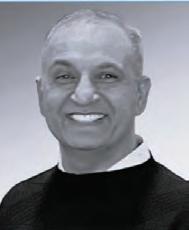
Inder Singh
Inder Singh is a successful entrepreneur with a deep-rooted commitment to Iowa’s convenience retail and fuel sectors. In 2004, he purchased his first convenience store in Storm Lake, Iowa, renaming it to Brew. Over the past two decades, he has grown this single store into a thriving network of 26 Brew stores across the Midwest, including a Brew Travel Center (branded as Travel Center of America) in Hutchinson, KS and another ground-up Travel Center project underway in Stuart, Iowa. His Brew stores are known for their fuel services, a wide selection of food and convenience items and premium specialty coffee offerings, creating a go-to destination for local customers and travelers.
Inder’s hands-on approach to business and his vision for customer-centered service have driven his company’s growth and established Brew as a trusted brand in Iowa and the Midwest.
Board Goals: Inder is eager to bring his knowledge of independently owned fuel providers, c-store innovation and customer service excellence to FUELIowa, advocating for policies that support independent retailers and foster growth across the industry. He understands the challenges of adapting to market shifts and regulatory demands and is committed to finding solutions that benefit FUELIowa members and communities alike. With a passion for service and a track record of proven success, Inder would be a dedicated advocate for the fuel and convenience sector on the FUELIowa board

Ed has worked in the petroleum industry for over 25 years in various roles including Lead Installer, Senior Service Technician, Service Manager overseeing Des Moines & Nebraska branches, Corporate Service Manager (8 branches) & Key Account Manager. He managed many large-scale projects, and his most noteworthy year included nine new convenience store builds in multiple states with a value of over $8M for the petroleum portion. He played an integral part of the company acquisition process that expanded their footprint in several states and grew the organization to $250M with over 100 service technicians.
In his current role as Vice President of Business Development he supports and grows key accounts, lead sales & estimating team members and promote company expansion. He enjoys his role because it enables him to provide our customers with the best equipment and exemplary service while building strong, long-lasting partnerships. The petroleum industry is exciting because it presents challenges that allows Ed to learn and grow both as an individual and a professional.
Board Service: He served on the PEI Service Ten Group as a chairman for four years and was an active member on the Gilbarco Service Advisory Council for two years.
He and his wife Jamie have three sons together: Hunter, Slade and Channing. They’ve been married for over 17 years and love traveling, riding their motorcycle and boating on Lake Okoboji in the summer.

Grant Palmer is a seasoned professional with over 13 years of experience in the petroleum industry. He currently serves as a Branch Manager and Account Manager for Seneca Companies’ Fuel Systems Division. Starting his career as a Remediation Specialist handling LUST (Leaking Underground Storage Tanks) cleanups, Grant has progressed into leadership roles, leveraging his expertise in compliance management, LUST investigation, licensed installation, and compliance inspections.
He is passionate about fostering customer relationships and providing training opportunities for newcomers to the industry. He is dedicated to helping customers access funding opportunities and navigate complex regulatory landscapes to enhance their operations. This commitment to innovation and resourcefulness further strengthens his ability to support and train industry newcomers as well as career long friendships with customers and industry focused personnel.
Board Goals: When elected, Grant wants to enhance customer support processes to build stronger relationships and trust. Create initiatives to identify and prepare future leaders within the organization and build collaborations with government agencies, nonprofits, and other organizations to streamline grant programs and compliance processes. Develop robust systems and processes to adapt to and implement solutions for evolving regulatory changes all while being dedicated to fostering a culture of humility, integrity, and service. Known for my approachable and collaborative leadership style, I desire to prioritize building genuine relationships and supporting others' growth, both professionally and personally.
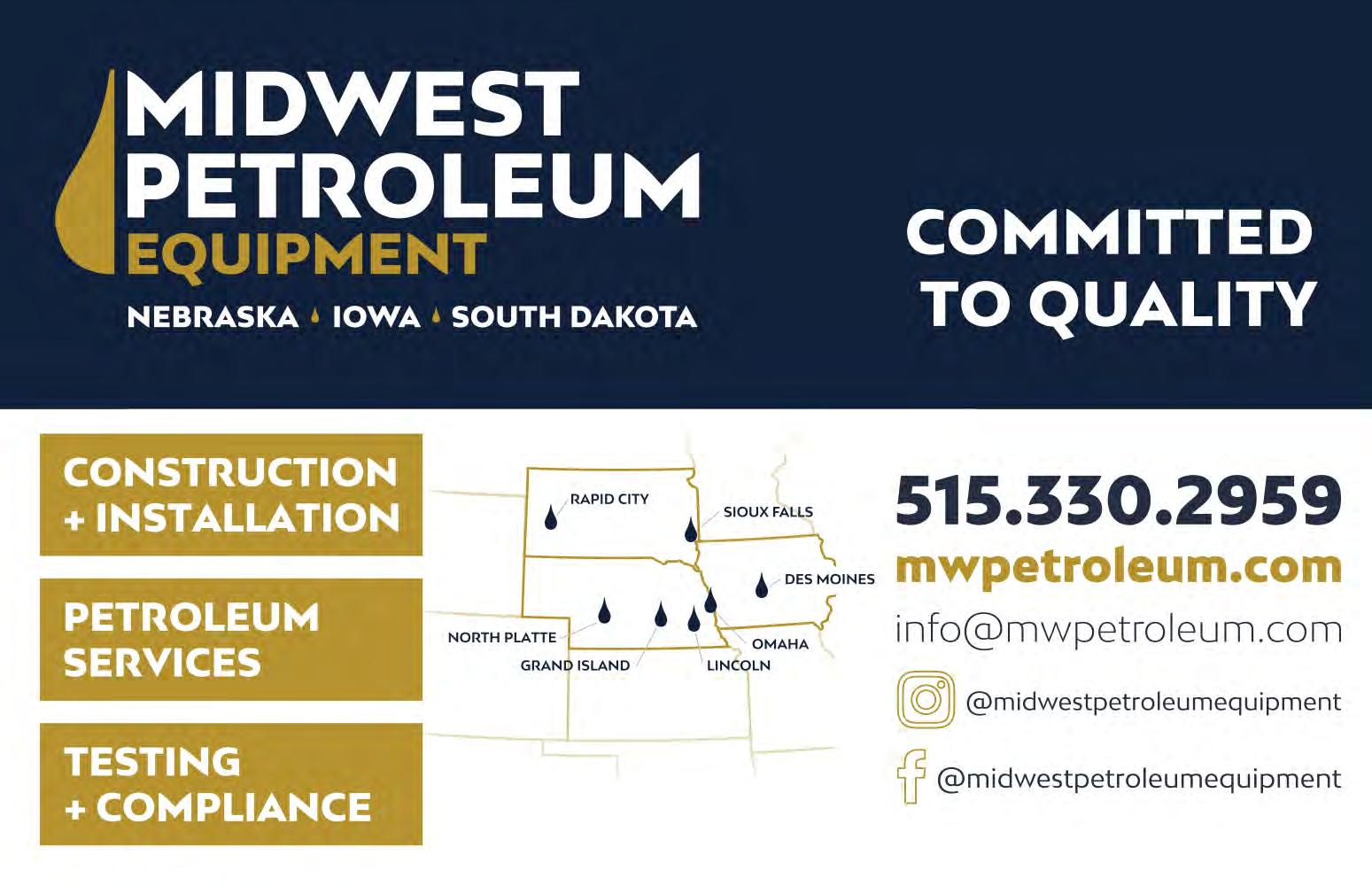
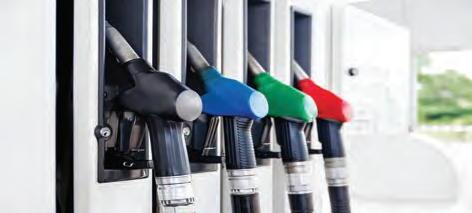



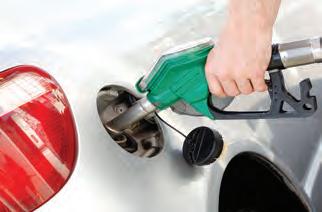
Be Confident in Your Coverage
Get Rewarded for Safety in Dividends
Retain Your Employees with Unbeatable Benefits
Receive Quality and Competitively Priced Health, Vision and Dental Insurance
Be assured you are in regulatory compliance.
Stay current with Federal and State policy changes. Take full advantage of tax incentives
A FUELIowa expert is just a phone call away
Funds to Support UST Systems
Alternative Approaches to Reduce Regulatory Burdens
Tax Incentives and Reductions to Improve Your Bottomline
FUELIowa’s experts work with policymakers at all levels of government
• Storage Tank Leak Detection and Compliance
• 24-Hour Emergency Response Services
• Unattended Site Monitoring
• Credit Card Processing Solutions
• Coupon Redemption
• RIN Compliance
• Weekly E-Newsletter on the Latest Industry Happenings
• Workshops and Events
• FUELIowa Magazine
Visit www.FUELIowa.com/services.cfm for detailed information.

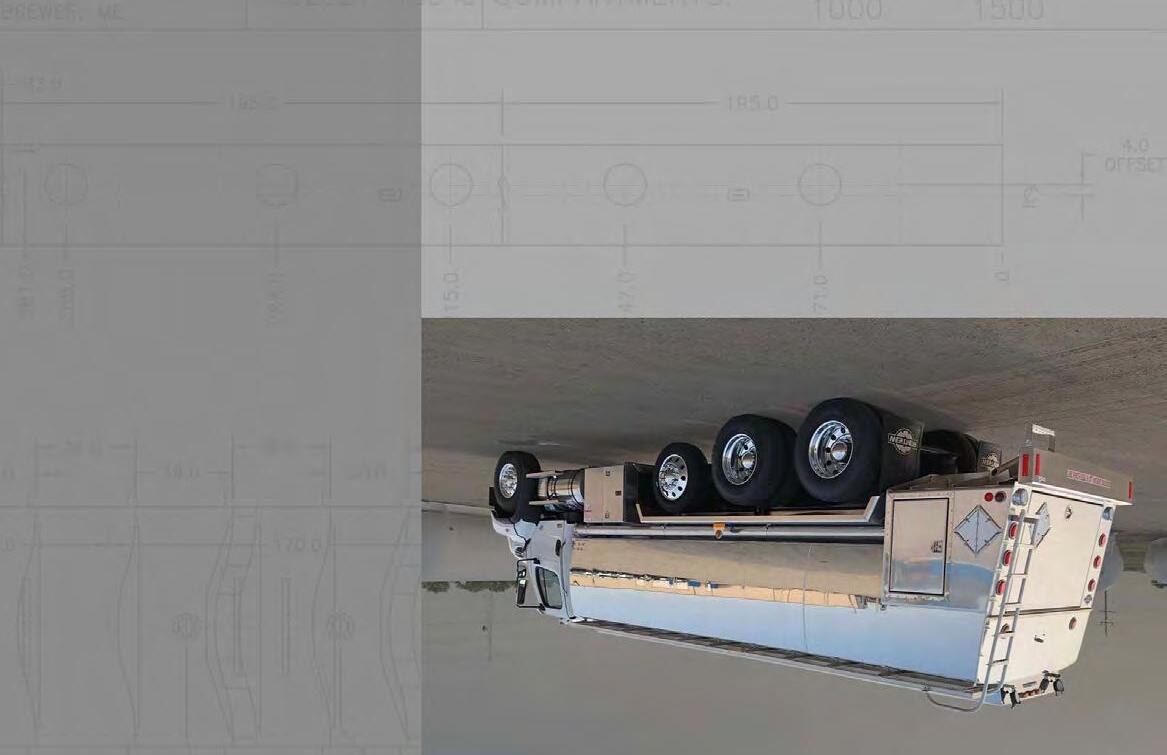
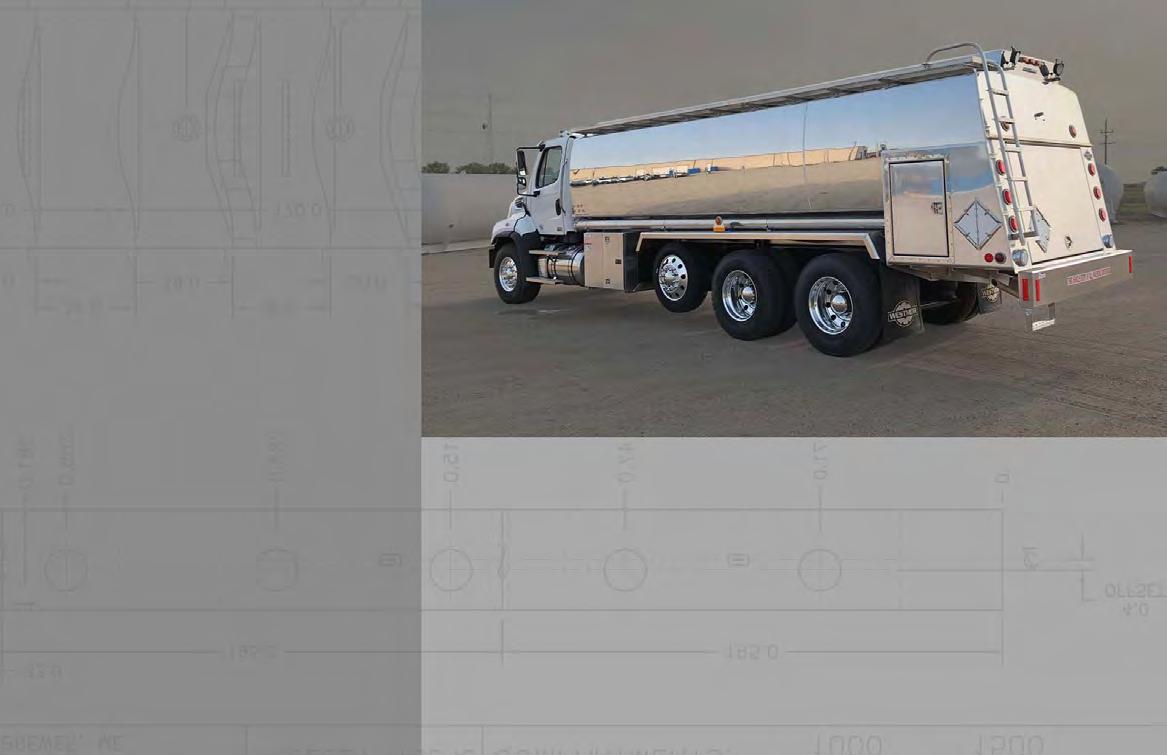
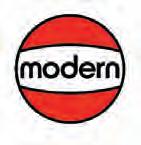









By John Maynes, President, Government Affairs, FUELIowa
While Iowa’s Legislative Session traditionally runs from midJanuary through April, the preparation for a legislative session continues throughout the calendar year. Internally, the FUELIowa Board of Directors always has their sights set on opportunities to address issues common among the membership. For this reason, the Board of Directors and staff at FUELIowa are constantly seeking input and feedback from FUELIowa members regarding the issues facing member businesses.
Following any legislative session, FUELIowa embarks on a factfinding mission among the membership. By engaging members on the issues impacting their business, FUELIowa staff are able to take that feedback, provide it to the FUELIowa Board of Directors, and search for solutions to the problems identified by FUELIowa’s member businesses.
While this process fits tidily in the paragraph above, the work involved runs from May through the start of the following Iowa Legislative Session in January. In general, the FUELIowa Board of Directors will identify the association’s legislative priorities at their early August Board
meeting. Following the August Board meeting, FUELIowa staff is vetting our legislative priorities with our liquid fuel industry stakeholders and lawmakers to find and work through areas of alignment and conflict with the priorities of the association. Gathering this feedback in critical to ensure resources are allocated properly to achieve the objectives set forward by the FUELIowa Board of Directors.
Moving forward, the FUELIowa Board of Directors and staff are seeking more from our members in terms of association policy development. We are reinstating a committee process open to all members interested in participating. Committees will meet periodically throughout the year, likely through a virtual platform. Over the course of these meetings, committees will identify challenges facing member businesses and develop policy solutions for staff to pursue.
The impact of working committees of the type we envision can be invaluable. In addition to providing FUELIowa Board members transparency in meeting their fiduciary duty to serve the best interests of all association members, committee members will be experts on the policy initiatives advanced by the association and we are strengthening our grassroots advocacy capabilities at the same time. Please consider reaching out to John Maynes in the FUELIowa office to get assigned to a committee of your choice. For the 2025 Iowa Legislative Session, the FUELIowa Board of Directors has highlighted three areas of priority. In no defined order, the FUELIowa Board of Directors has prioritized staff to pursue legislative relief for
aboveground storage tank owners from the continued assessment of property tax levy’s on their aboveground storage tanks. Additionally, Iowa’s biofuels tax credits are due for extension. Iowa’s $0.09 per gallon E15 tax credit is set to expire on January 1, 2026, and Iowa’s menu of biodiesel tax credits are set to expire on January 1, 2028. It makes sense for future growth in retail biofuels sales to pair the tax credits available for ethanol and biodiesel to the same timeline.
Last, the 2025 Iowa Legislative Session marks the final session prior to Iowa’s E15 Access Mandate taking effect. With well over $200M invested in E15 infrastructure today, the latest report from the Iowa Department of Revenue shows 489 sites out 1879 offering E15 today. Without practical adjustments to Iowa’s law, as it stands today, the Iowa Department of Agriculture will be forced to begin revoking licenses at retail motor fuel sites beginning on January 1, 2026.
FUELIowa members should add a note to their calendar for March 1, 2025. Around that time, you will receive a formal notice of your assessment. Your notice will include a right to appeal. If your ASTs are included in your assessment, we encourage you to appeal.
As an association, our goal is to fix the current inequity surrounding the assessment of tanks with a permanent, statutory fix. To date, FUELIowa has obtained an Iowa Court of Appeals decision, an Iowa Property Assessment Appeals Board decision, and at least four Iowa District Court decisions
affirming our interpretation of the Iowa’s property tax laws that aboveground storage tanks are equipment that is ordinarily removed when an owner changes location and therefore not subject to property tax.
As mentioned earlier, Iowa’s fullyrefundable state income tax tied to the sale of E15 is set to expire on January 1, 2026. The 2025 Iowa Legislative Session will be the final opportunity for lawmakers to extend the tax credit prior to its repeal. Although Iowa’s fully refundable state income tax credits for B11, B20, and B30 are set to expire on January 1, 2028, it makes sense to pair both income tax credit tracks together by extending them and providing businesses with the certainty necessary to further investment in the infrastructure and marketing required to grow sales of our homegrown biofuel products.
While state lawmakers have been historically supportive of biofuel tax credit programs in Iowa, according to the most recent Tax Credit Contingent Liabilities Report released by the Iowa Department of Revenue, Iowa is projected to spend nearly $44M in state fiscal year 2025 on its biofuels tax credit package. With property and income tax cuts on the minds of state lawmakers, and signs of declining state revenues on the horizon, prioritization among various state tax credits is likely to be a focus for state lawmakers in 2025. Fortunately, we have a success story to share when it comes to the sales growth driven through Iowa’s biofuels tax credit package.










































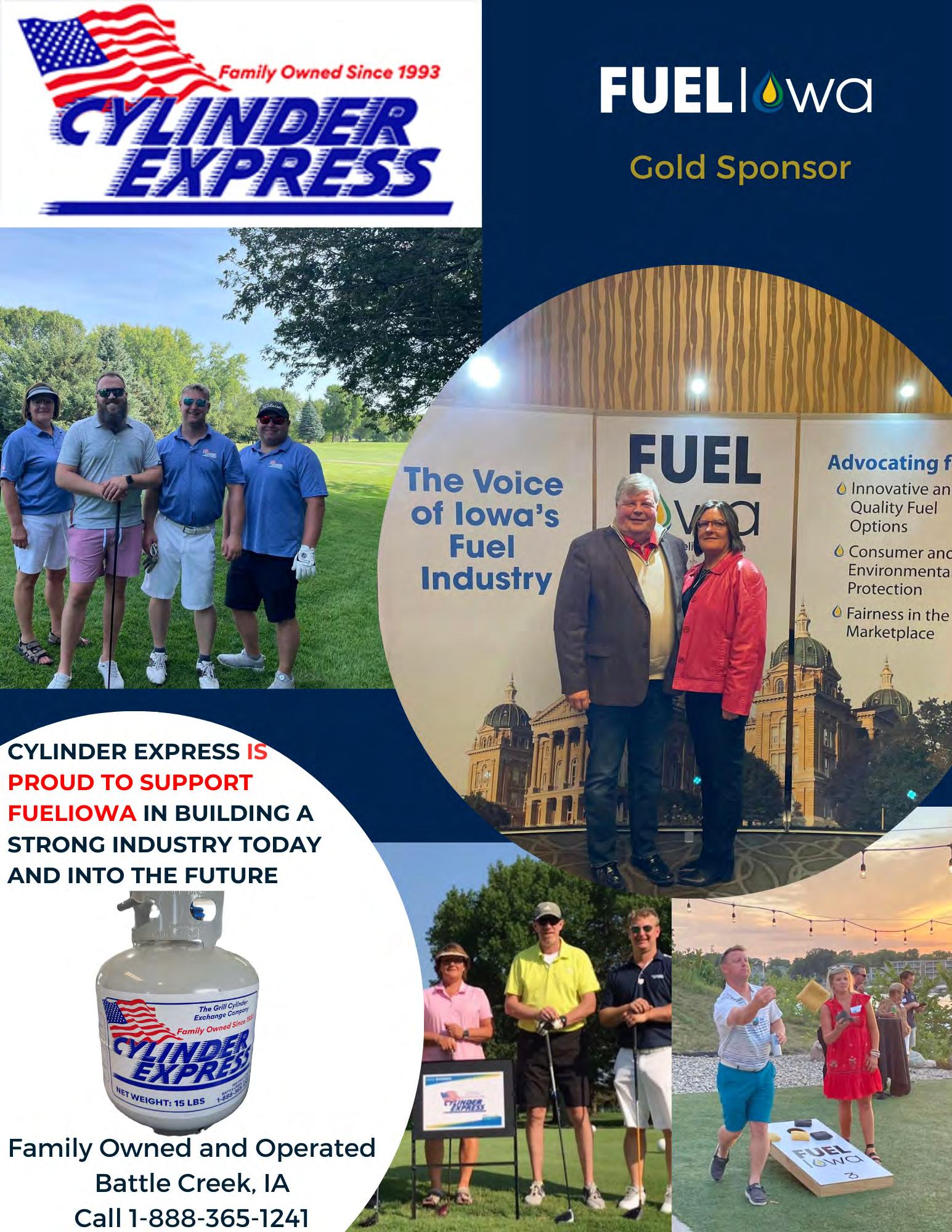


FUELIowa Fashion is Available!
Men or Womens Jacket:
Port Authority® Packable
Puffy Jacket
Color: Black
Sizes: XS-4XL
Men or Womens Vest:
Port Authority® Packable
Puffy Vest
Color: Black
Sizes: XS-4XL
Email Jim Ewing at jim@fueliowa.com to order your FUELIowa fashion.
Mulgrew Oil & Propane Co.Hosts Representative Ashley Hinson
A special thank you to Representative Ashley Hinson (2nd District in Congress) for taking time out of her busy schedule to put boots on the ground to meet with some of our leadership team and tour our corporate office in Dubuque. Her passion for issues like Energy and Agriculture and Rural Development are right up our alley.
Casey's donates $1 million to downtown ICON Water Trails, will be overlook's namesake
Casey's General Stores has donated $1 million to the Iowa Confluence Water Trails, demonstrating the convenience store chain's commitment to creating "great places to live, work, play and explore," CEO Darren Rebelez said in a news release.
The hefty donation comes with perks. The Ankeny-based convenience store chain received the naming rights for an overlook to be built at ICON’s Center Street site, which will be known as the Casey’s Scenic
Overlook. The company joins Principal Financial Group, which has invested $3 million in the project and in turn will be the namesake of Principal Point, where users will be able to access the downtown water trail at the Scott Avenue Dam.
ICON includes a proposed 80 developments on 150 miles of waterways in central Iowa. The Center Street site, where ICON plans to renovate the Center Street dam on the Des Moines River beneath the Iowa Women of Achievement pedestrian bridge and add a whitewater course, will be one of the $125 million initiative's gems. The overlook will be upstream on the river's east bank, a rendering shows.

A rock climbing wall and four ziplines crossing the river are planned nearby.
"Central Iowa is full of unexpected outdoor recreation benefits, and we are proud to be part of ICON Water Trails through our support of the Center Street site," Rebelez said.
ICON Water Trails Executive Director Stephanie Oppel thanked Casey's for its donation and dedication to its customers, who she said will benefit from the water trails' amenities.
“The private sector in our region is truly exceptional, and it’s because of
partners like Casey’s that we’re able to bring this project to fruition," Oppel said.
Construction at ICON’s Harriet Street site and Principal Point at the Scott Avenue Dam is on schedule. ICON’s second whitewater access point, on the Raccoon River off Fleur Drive near Gray's Lake, is set to go to bid this fall. All work is expected to finish by the end of 2026.
Casey’s joins dozens of businesses that have backed the ICON Water Trails. Its donation follows a recent allocation of $1 million in federal funds and brings ICON's grand total to just over $99 million, $31.5 million of it from the private sector.
Oppel told the Des Moines Register at the end of August that the organization expected to reach the $100 million mark "very soon." After that, the funding gap will be $25 million.
Addison Lathers covers growth and development for the Des Moines metro. Reach her at 608-931-1761 or alathers@registermedia.com, and follow her on X at @addisonlathers.

More than 7,500 Shell stations across the country are participating.
Shell’s The Giving Pump campaign is returning this fall for its fourth year. Running until October 31, a portion of purchases made by consumers who use the designated purple pump at select Shell stations will support local children's and family-focused charities across the nation.
The Giving Pump will be specially marked with colorful signage at participating stations and can be found across 47 states as part of Shell's Force For Good initiative to give back and drive positive change in local communities.
This year, The Giving Pump is supporting 552 local and national charities across the U.S., including St. Jude Children's Research Hospital, Boys & Girls Clubs, Prader-Willi Syndrome Association USA and The Brooke Healey Foundation. Starting at 2,900 locations in 2021, the number of Shell stations participating in this two-month initiative has grown to more than 7,500 across the United States. The Giving Pumps were used 7.3 million times during the two-month campaign last August and September.
"The Giving Pump is an easy and impactful way for customers to give back through the simple act of filling up their vehicles, and we look forward to highlighting the many organizations whose mission is to aid children and families in their communities," said Barbara Stoyko, senior vice president, Mobility Americas at Shell. "Each year, it has been uplifting to see the commitment from customers and stations to support nonprofits that have a positive effect on the lives they serve."
As one example, Peninsula Bridge, a program dedicated to empowering under-resourced and first-generation students to achieve college and career success, is teaming up with
Loop Neighborhood Market and AU Energy for The Giving Pump campaign.
"We are thrilled to partner with Peninsula Bridge through The Giving Pump initiative," said Sunny Goyal, vice president at Loop Neighborhood Market and AU Energy. "At Loop, we believe in making a positive impact in the communities we serve. Peninsula Bridge's commitment to empowering under-resourced and first-generation students aligns perfectly with our values. By working together, we can help these students overcome barriers and achieve their full potential, making a lasting difference in their lives and our community."
"We are proud to partner with Loop Neighborhood Market and AU Energy to support our commitment of eliminating the unique challenges that our first-generation students must face, because we believe that talent is universal, but opportunity is not," said Randi Shafton, chief executive officer of Peninsula Bridge. "This generous donation will help us empower them to thrive and become leaders in their families, communities, and world."
Gas Spot opens first Missouri c-store with Arkansas next
The women-led retailer that rose from the ashes of Mountain Express is growing its brand outside of Iowa as it looks to build its Midwest footprint.
Published Oct. 4, 2024
Dive Brief:
• InConvenience Inc., the parent company of the Gas Spot and Goods Spot convenience store chains, opened its first location outside of Iowa in mid-
September, CEO Tiffany Fraley confir med to C-Store Dive.
• The first Missouri Gas Spot is located in Pattonsburg, Missouri, a small town about 75 miles north of Kansas City. It’s one of five locations in Missouri that InConvenience plans to open within the next year, Fraley said.
• InConvenience also has five locations in Arkansas in the works, which are also set to open in the second half of 2025, Fraley said.
Dive Insight:
As InConvenience grows, it’s taking things slow to avoid making the same mistakes as a company like Mountain Express.
The building housing the first Gas Spot in Missouri received several renovations before opening, including fresh paint and signage, new restrooms and display fixtures, and a walk–in beer cave, said Alicia LaFollette, brand director for InConvenience.
Additionally, InConvenience gutted the small kitchen that was previously inside the store and created what it calls the “Gathering Spot,” which will house soda fountains and frozen beverages, as well as a cooler for grab-and-go items, LaFollette said. It also includes a freezer, which will eventually include frozen food items that customers can heat in a microwave.
The store also now has tables and chairs for customers to relax during their visit.
“Hopefully it’s just a warm, friendly and inviting place to be,” LaFollette said.
InConvenience opened its first company-operated convenience stores earlier this year in Davenport and Cedar Rapids, Iowa. Those stores were formerly leased to Mountain Express Oil, which lost its assets amid a tumultuous Chapter 7 bankruptcy filing. InConvenience’s parent company, InCommercial Property Group, owned the locations.
InConvenience is taking another play from that same playbook with its stores in Missouri and Arkansas. All of those locations were formerly leased by InCommercial to SQRL Service Stations, which continues to spiral out of control amid multiple bankruptcy filings and legal battles with its landlords.
A common thread between Mountain Express and SQRL was that they tried to grow too quickly — acquiring hundreds of c-stores in a short span — without establishing a foundation for their retail operations.
Fraley said InConvenience, which operates 13 c-stores, is taking its expansion slowly to avoid similar pitfalls. The Missouri stores are expected to open in the next six to nine months, while the Arkansas locations should debut in the second half of 2025, Fraley said.
“We want to make sure that the stores are safe, clean, up to code, ready to operate, that we’ve got all of our proper licensing, [and that] we’ve passed all inspections,” she said.
Wells Fargo Arena to be renamed Casey's Center in 2025
opening of the Iowa Events Center and Wells Fargo Arena, Polk County leaders announced a new brand Monday morning.
Casey's General Store and the Iowa Events Center have entered a 10year naming rights partnership for the 15,000-seat sports and entertainment venue. Starting July 1, 2025, the arena will be named Casey's Center.

Casey's CEO Darren Rebelez said in a press conference Monday that Casey's iconic pizza will be coming to the venue.
"When we heard that Wells Fargo wasn't going to renew, we knew that we had to have our name on this venue," Rebelez said. "It's such an iconic venue, and people from all over the region, not just in Iowa."
We'll find out how much the naming rights deal is worth when the Polk County Board of Supervisors votes on the contract on Tuesday.
KCCI reached out to Wells Fargo to ask why they didn't renew their naming rights. They didn't have any comment.
Midwest Petroleum Equipment Llc Announces The Promotion Of Devin Morris To President/Coo
Des Moines, Iowa —
On the 20th anniversary of the
LINCOLN, NE - Midwest Petroleum Equipment (MPE), a leading provider of fuel dispensing and management systems in Nebraska, Iowa, and South Dakota, is proud to announce the
internal promotion of Devin Morris to President and Chief Operating Officer. Effective January 1, 2025, Devin will have day-to-day oversight of company operations. Recognized on the 2024 Inc. 5000 List of America’s FastestGrowing Private Companies, MPE’s mission is to be the premier petroleum service company in the Midwest, and this appointment of Devin Morris as President and COO is the next step in our continued growth.
Alex Kringen will transition into the role of Chief Executive Officer to focus on the company’s growth plans, customer engagement and strategic initiatives.
“Devin is an absolute rockstar and is the right leader to take over the
day-to-day operations of running our company. As our team and business continue to grow and take shape, Devin’s solutions-based approach with operations and customers combined with his commitment to safety and quality are unmatched. We are poised to take our business to the next level with his leadership,” said Alex Kringen.
Devin Morris started with MPE in August 2023 as a Construction Operations Manager. His strengths in industry knowledge, organization, safety, and leadership helped him to quickly move into the role of Vice President of Field Operations, and now as President/ COO. Prior to MPE Devin spent 17 years working in various construction
management and leadership roles in the general contracting industry. His project total value was over $2.1B and included transportation, hospitality, government/military projects, healthcare, education, and high end residential/commercial projects. He graduated from Purdue University in the field of Engineering Technology and holds many professional safety accreditations.
"I am looking forward to this new opportunity with such a great company," Devin said, "This role will allow me to bring a new perspective to the daily operations at MPE and set us up for incredible growth in the near future."

FULL-YEAR SPONSORSHIP PACKAGES
COMPANY RECOGNITION (at your level)
All FUELIowa Events & Meetings (see back cover for details)
FUELIowa Magazine
FUELIowa.com (includes link to your website)
FUELIowa.com Home Page (includes link to your website)
FUEL Insider Weekly E-Newsletter
SPECIAL INCENTIVES
Registrations to FUELIowa Events (Excludes Camp Courageous & UMCS)
Advertising Discount (see ad packages)
SUMMERFEST Golf Hole Sponsorship & Foursome
Meeting Space (FUELIowa Board Room)
Annual Meeting Host Sponsor Recognition
Legislative Reception Host Sponsor
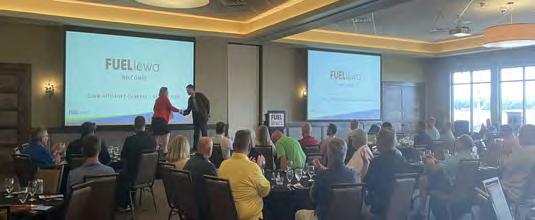






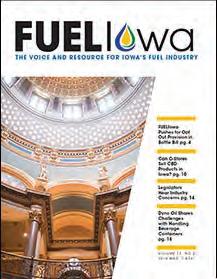
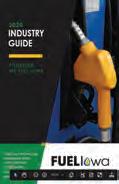
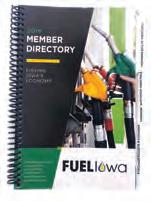
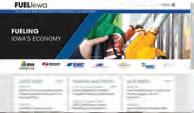

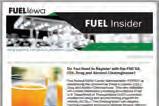

Ad or Advertorial •1/2 Page..............$1500 Magazine Ad or Advertorial • 1/4 Page.............$1000 Industry Guide Ad • Full Page..............................$2000 Industry Guide Ad • 1/2 Page..............................$1500 Industry Guide Ad • 1/4 Page..............................$1000


By Risk Improvement Department, EMC Insurance Companies, Des Moines, Iowa
ple walk, such as sidewalks, parking lots and building entrances. Look for things that might cause slips or trips:
• Changes in elevation—
Heaved sidewalk sections, tree roots and potholes can create elevated edges in the walking surface that are likely to cause a trip. Just a quarter of an inch is enough to catch a pedestrian's foot.
• Changes in elevation can be fixed with concrete leveling techniques such as mudjacking, or by grinding down the edges of sidewalk sections. Elevated edges that can't be fixed now should be marked with high-contrast paint and/ or cones.
Winter is a busy time of year for those in the fuel industry, but your service calls aren't the only thing that will be on the rise. Injuries from slips and falls peak during winter months, putting your employees out of commission right when you need them most. If you have retail locations, slippery conditions from winter weather can put your customers at risk too.
Take action this fall to prevent slips when winter arrives.
Start by surveying your property, inside and out, focusing on areas where peo-
• Water collection points—Any water you currently see could become ice once the temperature drops. Puddles and potholes are common culprits, but also look for areas where downspouts or gutters empty onto walkways.
• Entrances without mats— Precipitation migrates indoors on shoes, creating slippery floors and extra housekeeping work. Entrances should have mats on the inside and outside of doors to catch moisture as people walk in.
Once you've identified your issues, you can start making fixes before winter weather arrives.
• Depressions that fill with water can be filled permanently with concrete, or temporarily with gravel or paver base. Downspouts that discharge onto walkways can be rerouted underneath the walking surface.
• Have a solid mat strategy to protect indoor walkways from outdoor weather. Be prepared to swap out saturated mats with dry ones as needed.
If you get a reasonable amount of snowfall, you'll need to find a place to pile it after plowing and shoveling. Accumulated snow will melt and refreeze, forming a very slippery sheet of ice, so choose a snow collection area where water runoff won't end up covering walkways.
If you contract your snow removal, fall is a great time to review your agreement and walk the site to pinpoint problem areas, ensuring everyone is on the same page.
Ice melt is ever-present during winter but choosing the wrong kind or applying too much can have unintended consequences like concrete damage or a slippery film on interior floors.
• Choose the right ice melt product and consider the best way to apply.
• Make sand, salt or poultry grit available near entrances so
employees can spot treat slippery areas as needed.
• Beware of black ice in late winter and early spring. Monitor areas where snow and ice melt and check for refreeze in the morning. Icy areas should be treated and marked because black ice is exceptionally slippery and very hard to see.
Footwear makes a big difference for employees working outside or in slippery areas.
• For slippery indoor areas, encourage employees to
choose slip-resistant footwear with a multidirectional tread pattern to minimize hydroplaning and a softer rubber sole to help grip hard surface floors.
• Employees working outdoors in snow and ice should wear rubber-soled footwear with wide, deep treads or slip-resistant soles. Consider removable ice cleats for additional slip resistance (these should be removed upon entering a building).
Article courtesy of the Loss Control department, EMC Insurance, Des Moines, Iowa. For more information, visit emcinsurance.com and select Loss Control.
12PM - 2:30PM Embassy Suites
101 E Locust St, Des Moines, IA
Plated Lunch
Our Legislative Conference is our signature kick-off event focused on priority industry issues that will impact your business and association initiatives.
We encourage you to attend so you know what policies will be considered, how they will impact your business in 2005, and what you can do to prepare or help shape them.
3:30PM - 5:30PM Embassy Suites, 101 E Locust St, Des Moines, IA
Open Bar & Hors D’oevres
Our Welcome Back Legislative Reception is a great way to touch base with legislators from across the state in a fun and relaxed setting. Making the trip to Des Moines to thank them for their support and to ask them for their continued help leaves a strong impression for our industry.
Be sure to join us to show our united voice to Statehouse representatives. We want them to know, "Together, We Fuel Iowa!"





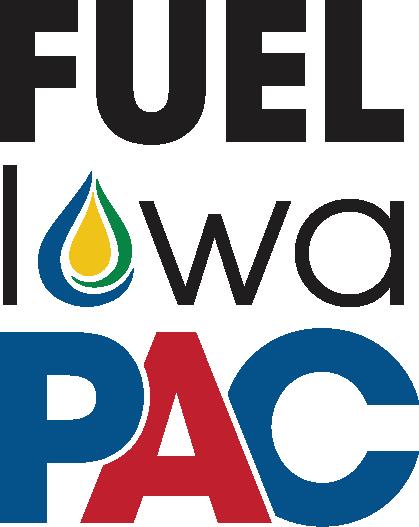
($5,000+)
As of 11/14/2024
$8,920 Don Burd - Otter Creek Country Stores*
$5,470 Paul Fahey & Tessa Anderson- Rainbo Oil*
$5,000 Larry Bentler, Jet Gas*
($2,500-$4,999)
$3,375 Keith Olsen - Olsen Fuel Supply
$2,750 Jason McDermott - McDermott Oil*
$2,600 Todd Kanne - Community Oil*
$2,540 Jim Ewing – FUELIowa
$2,500 Thomas Flogel - Mulgrew Oil
$2,500 Bev & Henry Jessen – Cylinder Express
$2,500 Jennifer Likes – Harms Oil
$2,500 Cliff & Dave Reif - Reif Oil*
$2,500 Randy & Andrew Woodard - Elliott Oil*
PARTNER ($1,000-$2,449)
$2,030 Nate Lincoln – Lincoln Farm & Home
$2,000 Steve Kimmes - Kimmes Enterprises LLC
$1,600 John Maynes – FUELIowa
$1,500 Josh & John Gilroy - Grysson Oil
$1,500 Eric Taylor - Taylor Quik Pik
$1,000 Richard Weiner – Cartersville Elevator
$1,000 Michael Hildenbrand – CHS, Inc
$1,000 Marc Beltrame - Beltrame Law Firm
$1,000 Gary Koerner – FUELIowa
FRIEND ($500-$999)
$630 Jason Floy
$600 Nate Stumpf
$525 Sarah Bowman
$500 Travis Buhman
$500 Sam Hoefler
$500 David Scheetz
$500 Matt Scheetz
$500 Jeff Wade
$500 Doug Coziahr
CONTRIBUTOR ($0-$499)
$490 Tia Eischeid
$400 Chad Besch
$400 Jason Stauffer
$400 Dustin Jones
$350 David Spooner
$295 Dennis Jaeger
$250 Steve Demmer
$250 Scott Richardson
$220 Mike Grzeslo
$200 Mike Frederick
$200 Adam Gardiner
$200 Adam Gisch
$200 Joseph Miller
$200 Bruce Urman
$190 Josh Vanevery
$120 Dale Boeckman
$120 Jacob Jessen
$120 Scott Spencer
$110 Ed Rogers
$100 Jared Baker
$100 Stratton Benscoter
$100 Allen Boeckman
$100 Kale Bulloch
$100 Wade Fowler
$100 Rick Graber
$100 Reo Menning
$100 Scott Moore
$100 Daniel Sprague
$50 Dean Onken
$25 Martin Bast
$20 Adam Bowles
$20 Dan Justin
$20 Joe Madsen
$20 Robert Mast
$20 Matt Mlynarczyk
$20 Tera Petersen
$20 Tony Whitaker
$10 Dave Lakner



JANUARY 14, 2025
FUELIOWA LEGISLATIVE CONFERENCE
Embassy Suites, Des Moines, Iowa
APRIL 7 – APRIL 9, 2025
UMCS St. Paul, Minnesota
JUNE 9, 2025
FUELIowa Golf Benefit for Camp Courageous Finkbine Golf Course, Iowa City, Iowa


With less than 35 days to go before the election and members of Congress hot on the campaign trail, this was a slow week in official Washington. But before Congress left town last week, Reps. Adrian Smith, (R-NE), Angie Craig, (D-MN) and more than 30 of their colleagues introduced the Nationwide Consumer and Fuel Retailer Choice Act. The bill aims to enable year-round sales of E15 nationwide. The bipartisan, bicameral legislation would extend the Reid vapor pressure (RVP) volatility waiver to gasoline blends containing up to 15 percent ethanol. The regulatory change would allow E15 to be sold year-round across the country. Sen. Deb Fischer (R-NE) introduced companion legislation in July 2023.
Meanwhile, Senator Joni Ernst (R-IA) and Amy Klobuchar (D-MN) sent a letter to the USDA requesting more funding for the Higher Blends Infrastructure Incentive Program (HBIIP). Specifically, the Senators urged the USDA to extend HBIIP funding through the Commodity Credit Corporation (CCC) to assist retail store owners to purchase the infrastructure necessary to provide e10 and b20 plus blends at the pump and b20 plus blends for heating fuel distribution facilities.
“Since its inception in 2020, HBIIP has been vital in expanding access to higher blends of biofuels like E15, E85, and B20 for customers. Through a costshare approach, HBIIP has helped fuel retailers invest over $77.8 million in biofuel-related infrastructure projects, leading to an estimated 1.2-billiongallon increase in annual biofuel sales,” wrote the senators. “However, access to these higher blends of renewable fuel can only occur if the proper infrastructure is in place at our gas stations, truck stops, and heating fuel facilities, a gap HBIIP has and will continue to help bridge. As the final quarter ends on September 30, 2024, we strongly encourage the USDA to allocate CCC funds to sustain this essential program.”
Meanwhile, due to severe damage caused by Hurricane Helene and escalation of the conflict in the Middle East, President Biden briefly considered asking Congress to return to pass a broad bill on disaster relief. While the impetus was the storm, there are many measures that could be included in any bill considered, including funding for the replacement of the I-695 bridge that collapsed in Maryland earlier this year. Still, most believe the $20 billion in disaster relief funds currently available to the White House and FEMA negate the need for immediate action from Congress, though they will still need to act at some point. In other words, we’re ok for now—no need to rush back. That said, the damage that has been done throughout the South and in Appalachia is catastrophic, and while the Administration is working with Governors in the affected states to determine how best to provide assistance, EMA members have been
doing so on the front lines, and for that we’re all incredibly grateful.
A separate matter that took up oxygen this week was a strike at ports along the East Coast and Gulf of Mexico that began October 1.
The International Longshoremen's Association (ILA) union, which represents about 45,000, was entangled in a pay dispute with the United States Maritime Alliance, which represents the interests of the operators of the main ports involved with the dispute. Although the strike could have led to issues like increased traffic congestion at ports, and likely fuel price increases, overall, the strike was unlikely to directly impact the petroleum industry because the industry does not typically rely on dock workers for marine operations. Generally, there was a concern a strike could reignite inflation and create significant supply chain bottlenecks for goods nationwide. Fortunately, the dockworkers’ union reached a tentative agreement on wages and are extending an expired contract through Jan. 15, 2025. “Effective immediately, all current job actions will cease, and all work covered by the Master Contract will resume,” the union said yesterday evening.
While we’re not typically focused on Middle Eastern affairs, but following an Iranian missile attack directed at Israel, Israel is expected to retaliate, and President Biden acknowledged one of the possible targets include Iranian oil facilities. Obviously, a strike on Iranian oil could increase the price of oil which is unwelcome news for anyone who purchases gas in any quantity. Regardless, we will report more as
we learn more about the activities unfolding in Israel.
Separately, in an interview with Politico, Rep. Eric Burlison (R-MO) used a few choice words to describe Transportation Secretary Pete Buttigieg, who is implementing policies to “destroy the car industry.”
Congressman Burlison noted in the interview that he wanted to claw back the $7.5 billion designated for EV charging stations provided in the Infrastructure Investment and Jobs Act (IIJA) and rescind a broad scope of emissions standards. We’ll continue to flag as many of these Congressional insights as possible as they can provide interesting color to the otherwise monotonous drone of Congress.
Inside the Beltway 10/19/24

Recently, Representatives Mike Carey (R-OH), Claudia Tenney (R-NY), Annie Kuster (D-NH) and Mariannette MillerMeeks (R-IA) introduced the “Biodiesel Tax Credit Extension Act of 2024,” (H.R. 9060), which aims to extend the $1 per gallon biodiesel blender’s tax credit through 2025. Extending the biodiesel blender’s tax credit is important to energy marketers in order to sell a growing portfolio of affordable,
efficient, and environmentally friendly liquid fuels that are helping to reduce emissions while propelling Americans forward and lowering heating fuel costs.
Since 2004, the $1 per gallon biodiesel blender's credit has worked successfully to build a strong incentive for downstream energy marketers to blend renewable fuel into the fuel supply which has lowered prices for motorists and heating fuels for consumers. As a result, the U.S. biodiesel and renewable diesel market has grown from roughly 100 million gallons in 2005 to 4 billion gallons today.
Unfortunately, the Inflation Reduction Act (IRA), which was signed into law in 2022, replaced the biodiesel blender’s tax credit with a new 45Z Clean Fuel Production Credit (CFPC) based on carbon intensity scores. Ethanol, biodiesel, renewable diesel and sustainable aviation fuel (SAF) will all be eligible for the new production tax credit, however, the Department of the Treasury has yet to publish CFPC guidance. Therefore, it is important that Congress acts soon to extend the biodiesel blender’s tax credit to give impacted industries market certainty for at least another year. Depending on the outcome of the November elections, a GOP controlled Congress could reevaluate much of the IRA’s tax credits so stay tuned.


The Energy Marketers of America (EMA) this week filed its opening brief in a D.C. Circuit Court of Appeals lawsuit challenging the U.S. Environmental Protection Agency’s (EPA) heavy-duty (HD) vehicle emissions standards for model years (MY) 2027-2032.
Recent polling suggests that Americans overwhelming oppose the Biden-Harris Adminstration’s electrification mandates. Despite public opposition, the administration continues advancing these policies through the rulemaking process without congressional authorization, undermining consumer choice and causing skyrocketing utility bills.
“Unfortunately, President Biden’s aggressive attempt to electrify the heavy-duty transportation sector will limit consumer choice on cleaner, greener ICEs, increase Americans’ utility bills to subsidize a massive expansion of the electric grid for EV charging, and threaten the viability and jobs of small business energy marketers around the country, whether they deliver gasoline, diesel or renewable fuels like ethanol, biodiesel and renewable diesel,” said EMA President Rob Underwood.
Today, heavy duty vehicles make up just one tenth of one percent of all heavy vehicles. Unfortunately, the
Biden-Harris EPA wants to arbitrarily increase that figure exponentially over the next seven years. Under the rule challenged by EMA, electric trucks would make up 45 percent of all heavy-duty vehicles sold by 2032. According to EMA’s brief, the rule’s electrification of the Nation’s trucking fleet involves a major policy question that must be decided by Congress. Accordingly, the rule is lawful only if Congress clearly authorized EPA to suppress the production of internalcombustion vehicles in favor of electric ones. No statute gives EPA that highly consequential power, and EPA has never claimed the power to require companies to sell electric heavy-duty vehicles. This forced transition to electric trucks will increase transportation costs, hike prices for basic goods, and strain the electric grid. It will also increase the cost of procuring the trucks that State Plaintiffs challenging the rule need to carry out essential state services like plowing snow and repairing roads. EMA is urging the Court to reverse EPA’s rule.
Additional Legal Challenges Playing Out
EMA is part of business groups and States who have already asked the courts to review EPA’s prior tailpipe emissions standards for model year 2025 and 2026 vehicles and the Agency’s reinstatement of California’s Clean Air Act waiver to issue climatebased vehicle emissions standards. Whether California can blaze its own trail on combatting climate change also implicates the “major questions doctrine,” which holds that courts should not defer to agencies on questions of “vast economic or political significance” unless Congress has provided explicit authority to the agencies. The appeals court will be asked to decide whether Congress authorized California in the Clean Air Act to regulate vehicle emissions to
target a major, global phenomenon with vast economic and policy repercussions like climate change. Additionally, EMA joined as amicus curiae challenge to the National Highway Traffic Safety Administration’s fuel-economy standards. Check out www.fuelmatters.org for more information about clean, green liquid fuels and the electrification mandate.
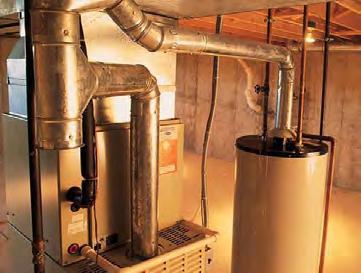
The U.S. Department of Energy announced it will not amend existing minimum Annual Fuel Utilization Efficiency (AFUE) energy conservation standards for consumer weatherized oil-fired furnaces (WOF), nonweatherized oil fired furnaces (NWOF) and mobile home oil fired furnaces (MHOF). AFUE is a percentage that measures how much of a furnace's fuel is used to heat a home. The current minimum AFUE rating for WOF furnaces is 78 percent while the minimum AFUE rating for NWOF furnaces is 83 percent. The DOE’s Office of Energy Efficiency and Renewable Energy made the announcement in Notice of Final Determination, released earlier this week.
The announcement is good news for heating fuel dealers because more stringent AFUE ratings would further constrict the already small and shrinking market for NWOF and WOF furnaces. The DOE is required under the Energy Policy and Conservation Act (EPCA 42 U.S.C. 6295(m)(1)) to review established AFUE ratings every six years to determine whether more-stringent standards would be technologically feasible, economically justified, and result in significant energy savings. The DOE Notice of Final Determination found that given the small market share of NWOF and WOF furnaces, more stringent minimum AFUE standards, while technologically feasible, would not result in any significant energy savings as required by law. The Notice of Final Determination also maintains the current minimum AFUE standards for weatherized gas furnaces and electric furnaces.

The DOE predicts that most U.S. households will spend about the same or less on energy than they did last winter, depending on a household’s main space heating fuel and the region where they live. Generally, retail energy prices in the DOE’s Winter Fuel Outlook are lower than they were last
winter, but temperatures across much of the country are set to be colder this year, meaning homes will use more energy for space heating. Heating energy costs for homeowners will be less than last year for heating oil. The DOE is predicting it will cost 5 percent less to heat with heating oil compared to last year. Heating with propane will be the same as last year while heating with natural gas will increase by 1% over last year.
Meanwhile, heating with electricity will cost consumers 2 percent more than last year. EIA projects total heating costs for the Northeast in the base case scenario as follows: natural gas $772; electricity $1391; propane $1674; heating oil $1410. According to the EIA, these costs could go up or down depending on colder or warmer winter weather than used in its predicted weather baseline.

This week, the Energy Marketers of America filed comments supporting FDA’s proposed rule requiring Submission Tracking Numbers (STNs) be submitted in the Automated Commercial Environment (ACE) at the time of entry for Electronic
Nicotine Delivery Systems (ENDS) being imported or offered for import into the U.S. Unfortunately, the limited enforcement actions have allowed illicit market actors to expand beyond ENDS to other tobacco and nicotine categories. EMA urged the FDA to finalize a Foreign Manufacturer Registration rule; increase the scope of import alerts for detention without physical examination; increase the number of field examinations at ports of entry with high ENDS import volume; and increase the number of random joint inspections with Customs and Border Protection (CBP).

The ASTM D02 committee is considering a proposal to remove existing text in Appendix X1 of D4814-24 Standard Specification for Automotive Spark-Ignition Engine Fuel related to the effects of altitude and weather on vehicle antiknock requirements. The task force proposing this revision has determined that the information presented in this appendix is no longer relevant due to the prevalence of antiknock reduction control technology in most vehicles produced after 1984. No data, however, has been presented to dispute the altitude adjustment for octane requirement discussed in the appendix.
EMA does not agree that the information related to effects of altitude and weather on vehicle antiknock requirements is no longer relevant information in the standard and has voted negative on the recent ballot for this revision. The information presented in this appendix continues to be relevant to vehicles without sophisticated control technology (mostly pre-1984 vehicles) as well as other engines that still do not have modern fuel systems. Altitude has a direct effect on air temperature and pressure, both of which affect gasoline engine performance, and regardless of whether there are knock sensors the discussion regarding the effects of altitude on vehicle antiknock requirements in the appendix is still relevant for 1984 and later vehicles.
Further, this proposed modification could impact the supply of 85 AKI fuel that consumers have continued to choose after considering the tradeoffs of engine performance, owner’s manual recommendations, driving habits and cost. While the ballot doesn't exactly remove the altitude allowance in high altitude areas, it does remove some of the foundational language that supports the allowance. Retention of this information does not negatively impact this standard and supports the ability to continue to provide 85 AKI fuel.
EMA Update 11/1/24

Yesterday, Judge Jordan of the Eastern District of Texas set a hearing
on summary judgment in the business community challenge to DOL’s overtime final rule for Friday, Nov 8, at 11am (eastern). The judge could rule on the case from the bench or quickly after the hearing.
As a reminder, the initial change to the federal overtime rule went into effect on July 1st. Salaried workers making less than $43,888 per year may now qualify for overtime pay. The threshold is set to increase again to $58,656 on January 1, 2025. Previously, only salaried workers making less than $35,568 annually qualified for overtime pay when they worked more than 40 hours in a week.
The Fair Labor Standards Act (“FLSA”) regulates when employees must be paid minimum wage and overtime. Under the FLSA, overtime pay, which is due to all employees who do not fall within a specified exemption, is one and one-half times an employee’s regular pay rate for every hour that is worked beyond 40 hours in a work week. While hourly workers are generally entitled to overtime pay, salaried workers are not if they earn above a certain pay level and supervise other workers. That pay level is what the Department of Labor increased.

It’s looking more and more like
a salvage operation on Capitol Hill as the Tax Cuts and Jobs Act provisions are being examined, culled, embellished, and reconstituted before it expires at the end of next year. But no matter, good, bad, or ugly, there will be a new tax bill in 2025 and priorities for energy marketer family businesses are taking shape. The House Ways and Means Committee is busy managing its ten Tax Teams to improve or save what it can from the 2017 Tax Cuts and Jobs Act (TCJA). A few items on the salvage list include avoiding increased income taxes, stopping a decrease in estate tax lifetime exemptions, no increases in capital gains taxes, and restoring research and development expensing, to name a few. The House Ways and Means Committee Chairman Rep. Jason Smith (R-MO) and Tax Subcommittee Chairman Rep. Mike Kelly (R- PA) formed ten Tax Teams earlier this year to study key provisions in the Trumpera TCJA. The Tax Teams are set up as follows: American Manufacturing, Working Families, American Workforce, Main Street, New Economy, Rural America, Community Development, Supply Chains, U.S. Innovation, and Global Competitiveness. The stated goal of these teams is to: “help families, workers, and small businesses,” according to Smith.
But what are the key family businessoriented tax policies critical for our legislators to review? Our tax team experts on Capitol Hill have uncovered seven “Tax Policy Legislative Priorities” for the 119th Congress that will affect America’s energy marketers. Here they are:
1. Preserve the current tax rates and brackets enacted under the Tax Cuts and Jobs Act. Family-owned businesses
rely on the consistency of tax rates more than corporate businesses due to the increased complexity in succession planning. In addition, family businesses are uniquely suited to reinvest more in their business, their employees, and their communities, according to the results of our 2024 Annual Business Survey. In our survey, 52% of respondents indicated that if they paid less in taxes, they would invest more in the business, and 30% indicated they would raise their employees’ salaries.
2. Reduce the estate tax rate. Estate taxes severely hamper the ability for family business owners to pass the business and related assets (which are typically illiquid) to the next generation, making it more difficult for the business to continue growing, providing important jobs, and contributing to local communities. Of family businesses surveyed, 70% have generational employees and 81% have been in operation for 20 years or more. Eliminating the estate tax consistently ranks among the top three priorities.
3. Make per manent the Section 199A deduction for passthrough businesses. The Tax Cuts and Jobs Act included a new deduction to help ensure business owners pay tax rates more comparable to the corporate tax rate reduced by the TCJA. If allowed to expire, the section 199A deduction will be uniquely and severely disadvantage passthrough businesses. Of family businesses surveyed
in our annual study, 78% operate as passthrough businesses, whether a partnership, LLC, S corporation, or other non-corporate structure.
4. Restore 100% bonus depreciation. Next to their commitment to their employees, family-owned businesses rely on capital investments to compete, grow, and thrive. Bonus depreciation is a critical tool for family businesses to support their capital investments and finance facilities and equipment critical to their ability to grow, expand employment, and contribute to the communities in which they operate.
5. Preserve the capital-gains tax rate. Like the estate tax, the capital-gain taxes present an obstacle for capital for mation and investments necessary for family businesses to expand, moder nize, and succeed in an increasingly competitive market, with 13% of family businesses ranking it in their top three tax policies of concer n – a 4% increase over the 2023 Survey.
6. Prevent the creation of a wealth tax. Wealth taxes –taxes on existing assets and unrealized gains – will be particularly har mful to family business owners who often disproportionately invest in the business in the hopes of passing it on to the future generations. In the most recent Family Business Survey, respondents identified preventing a “Wealth Tax” as one of their top five economic
priorities – a concer n that was nonexistent in prior years.
EMA Update 11/8/24

Energy Marketers of America (EMA)
President Rob Underwood issued the following statement on the results of the 2024 presidential election.
“Energy marketers across the country congratulate President-elect Donald Trump on his election victory. Liquid fuels are and will continue to be a crucial driver of economic growth in this county and a catalyst for affordable transportation. We look forward to working with his Administration and Congress to support balanced policies that address reasonable fuel efficiency standards and put an end to electric vehicle mandates.”
regulation and salary threshold increase (the “new rule”). There have been several legal challenges made in several different courts against the new rule. If one of these challenges is successful, DOL’s new rule could be overturned. As of today, no such challenge has been successful, and the new rule remains in effect.
What is the Department of Labor’s new rule?
On January 1, 2025, the new rule increases the minimum salary threshold that would qualify for exemption from overtime pay, which would result in a greater number of employees being eligible for overtime pay. The minimum salary threshold would increase to $58,656 annually (or $1,128 per week). Any eligible employee under this threshold would be eligible to collect overtime pay for any work completed over 40 hours.
Where do things stand now?
Currently, the challenges that have been decided in court have supported the DOL and kept the new rule in place. In one win for the DOL, a court specified that it is within the DOL’s authority to impose a minimum salary threshold for employees to qualify for overtime exemptions under the Fair Labor Standards Act (FLSA). However, that court recognized that if the DOL sets a threshold so high it overrides the need for employers to consider an employee’s job duties when determining their overtime exemption status, then the rule may not be enforceable.
The Department of Labor (DOL) released a Final Rule earlier this year that implements a new overtime
There are currently other cases challenging the DOL’s new rule as well. This morning, the District Court for the Eastern District of Texas is holding a hearing on the rule in a case brought by the state of Texas and several employer
organizations. A decision in the case could come as early as today, but it could take several more weeks.
Meanwhile, EMA sent a letter to Administrator Looman requesting the Wage and Hour Division delay the second increase to the minimum salary threshold until at least May 1, 2025, due to the pending legal challenges against the rule.
Recommendation going forward:
While the DOL’s new rule continues to be challenged in the courts, the new rule, as it stands today, is still in effect. We encourage businesses to review their compensation structure and be ready for implementation on January 1st. We will continue to monitor the courts and will provide updates on any changes.

This week, the Energy Marketers of America (EMA) filed comments on FDA’s guidance document issued on September 13, 2024, regarding enforcement of the rule requiring graphic warnings for cigarette packages and advertisements. The
guidance states that FDA intends to exercise enforcement discretion and generally not enforce requirements of the graphic warnings rule for 15 months after the date of the guidance—i.e., until December 12, 2025—and for an additional 30 days (until January 12, 2026) for products manufactured before December 12, 2025. EMA urged the FDA to issue regulatory guidance that the FDA make clear that retailers and distributors may sell cigarettes without graphic warnings so long as the cigarettes were validly manufactured by December 12, 2025, and introduced into commerce by January 12, 2026.
Click here to read EMA’s comments. David, please click this link and include the letter in the magazine.

Given President-elect Trump’s victory and Congress likely to be in GOP control next year, it is expected that the Tax Cuts and Jobs Act will be preserved. The House Ways and Means Committee Chairman Rep. Jason Smith (R-MO) and Tax Subcommittee Chairman Rep. Mike Kelly (R- PA) formed ten Tax Teams earlier this year to study key provisions in the Trumpera TCJA. The Tax Teams are set up as follows: American Manufacturing, Working Families, American Workforce, Main Street, New Economy, Rural
America, Community Development, Supply Chains, U.S. Innovation, and Global Competitiveness. The stated goal of these teams is to: “help families, workers, and small businesses,” according to Smith.
1. Preserve the current tax rates and brackets enacted under the Tax Cuts and Jobs Act. Family-owned businesses rely on the consistency of tax rates more than corporate businesses due to the increased complexity in succession planning. In addition, family businesses are uniquely suited to reinvest more in their business, their employees, and their communities, according to the results of our 2024 Annual Business Survey. In our survey, 52% of respondents indicated that if they paid less in taxes, they would invest more in the business, and 30% indicated they would raise their employees’ salaries.
2. Reduce the estate tax rate. Estate taxes severely hamper the ability for family business owners to pass the business and related assets (which are typically illiquid) to the next generation, making it more difficult for the business to continue growing, providing important jobs, and contributing to local communities. Of family businesses surveyed, 70% have generational employees and 81% have been in operation for 20 years or more. Eliminating the estate tax consistently ranks among the top three priorities.
3. Make per manent the Section 199A deduction for passthrough businesses. The Tax Cuts and Jobs Act included a new deduction to help ensure business owners pay tax rates more comparable to the corporate tax rate reduced by the TCJA. If allowed to expire, the section 199A deduction will be uniquely and severely disadvantage passthrough businesses. Of family businesses surveyed in our annual study, 78% operate as passthrough businesses, whether a partnership, LLC, S corporation, or other non-corporate structure.
4. Restore 100% bonus depreciation. Next to their commitment to their employees, family-owned businesses rely on capital investments to compete, grow, and thrive. Bonus depreciation is a critical tool for family businesses to support their capital investments and finance facilities and equipment critical to their ability to grow, expand employment, and contribute to the communities in which they operate.
5. Preserve the capital-gains tax rate. Like the estate tax, the capital-gain taxes present an obstacle for capital for mation and investments necessary for family businesses to expand, moder nize, and succeed in an increasingly competitive market, with 13% of family businesses ranking it in their top three tax policies of concer n – a 4% increase over the 2023 Survey.

On Tuesday, the State of Nebraska, the Energy Marketers of America, and Renewable Fuels Nebraska (RFN) filed an antitrust action in the District Court of Nebraska, Lincoln County, alleging that the 2023 “Clean Truck Partnership” agreement (CTP) between all major domestic manufacturers (OEMs) of medium and heavy-duty vehicles (MHDVs) and the California Air Resources Board (CARB) is anticompetitive.
The CTP commits the OEMs to meet CARB's zero-emission mandates for MHDVs, including the timelines (100 percent by 2036) in California's Advanced Clean Trucks and Advanced Clean Fleets programs, irrespective of any litigation challenging the State's regulations or CARB's authority to implement them. It also commits the OEMs to follow CARB’s regulations in every
state that has or “will” adopt them – again, even if they are ultimately found to be unlawful. Based on the CTP, the OEMs will reduce their output of internal combustion engine (ICE) vehicles, thereby eliminating consumer choice, and in turn drive-up prices for those same vehicles in Nebraska and elsewhere to subsidize the so-called “transition” to zero-emission vehicles (ZEVs). Further, the OEMs’ broad promise to follow CARB’s regulations in other states that purportedly “will” adopt them, and to not oppose any such out-of-state proposals, reflects the OEMs’ intention to reduce output and raise prices in states that have not and may never adopt such regulations, including Nebraska.
Unfortunately, consumers will have fewer options and be forced to pay higher prices for their preferred ICE vehicles – while these vehicles are still available. When the supply of ICE vehicles runs dry, consumers will be left to purchase ZEVs they do not want – vehicles that come with a sticker price two or three times higher than comparable ICE vehicles.
Ultimately, the CTP ensures that each OEM electrifies its MHDV fleet at the same pace and on the same timeline to guarantee that no member sustains any competitive disadvantage. This is done largely at the expense of states, such as Nebraska, which have no intention of following California’s regulations, and at the expense of consumers who have no desire to purchase ZEVs but will have to pay higher prices for the ICE vehicles they want. The bottom line is that the CTP is anti-competitive.
“Unfortunately, the OEMs’ and CARB’s aggressive attempt to electrify the heavy-duty transportation sector will limit consumer choice, increase Americans’ utility bills to subsidize a
massive expansion of the electric grid for EV charging, and threaten the viability and jobs of small business energy marketers around the country,” said EMA President Rob Underwood.
Today, electrified heavy-duty vehicles make up just one tenth of one percent of all heavy vehicles. Unfortunately, the OEMs and CARB want to arbitrarily increase that figure exponentially over the next several years. This forced transition to electric trucks will increase the cost of procuring the trucks that the Energy Marketers of America's members need to continue serving American motorists.
In the antitrust complaint filed Tuesday, the Energy Marketers of America urges the court to declare the CTP null and void.

Yesterday, the Senate approved the Transportation Security Screening Modernization Act by unanimous consent, S. 3959, that would eliminate costly background check redundancies within the Transportation Worker Identification Credential (TWIC), Hazardous Materials Endorsement (HME), and TSA PreCheck programs. Now it is up to the House to approve the bill before the end of this year.
"By combining each of the different steps along the credentialing process into one cohesive process, this legislation will help eliminate this logjam and get these drivers out on the road more quickly while, at the same time, maintaining the same levels of scrutiny," said EMA President Rob Underwood. In fact, the Government Accountability Office (GAO) had recommended these steps be taken in 2007 especially since all it does is smooth out an unnecessarily cumbersome credentialing process.
EMA urges jobbers and retailers to reach out to their Representatives and urge them to support the Transportation Security Screening Modernization Act.

This week, the Senate Judiciary Committee held a long-awaited hearing “Breaking the Visa-Mastercard Duopoly: Bringing Competition and Lower Fees to the Credit Card System,” and heard from witnesses on swipe fees. EMA is a member of the Merchant’s Payment Coalition (MPC) and NACS’s Doug Kantor testified on behalf of MPC during the hearing.
Senate Majority Whip Dick Durbin (D-IL), Chair of the Senate Judiciary
Committee, sponsored MPC’s supported Credit Card Competition Act, bipartisan legislation that would enhance competition and choice in the credit card network market, which is currently dominated by the VisaMastercard duopoly. Building off debit card competition reforms enacted by Congress in 2010, the Credit Card Competition Act would direct the Federal Reserve to ensure that the largest credit card-issuing banks offer a choice of at least two networks, one of which must be a network other than Visa and Mastercard, over which an electronic credit transaction may be processed.
Visa and Mastercard wield enormous market power in credit cards; according to the Federal Reserve, they account for nearly 576 million cards. Visa’s and Mastercard’s market power and network structure have enabled them to impose fees on U.S. merchants that are among the world’s highest, charging more than $100 billion in U.S. merchant credit card fees in 2023 alone. These fees include interchange fees which Visa and Mastercard require merchants to pay to issuing banks, as well as network fees that Visa and Mastercard require merchants to pay directly to them.
In his testimony, NACS’s Doug Kantor pointed out that the huge costs of the system, which disproportionately impact lower-income Americans, are “an ongoing problem, and consumers don't know it. Everything about this is hidden from them. They're not aware of the role Visa and MasterCard play. They're not aware of the other processors in the system. They're not given information about the pricing or the fact that there’s any fees at all.” Retailers, restaurants, and other small businesses have no ability to negotiate these fees, which can run anywhere from one to three percent of the total
bill. The only ‘choice’ they have is to accept Visa- and Mastercard-branded credit cards and pay the fee or refuse to accept the cards entirely—which, in this day and age, is no choice at all for most retailers.
During the hearing, Durbin questioned Bill Sheedy, Senior Advisor to the CEO of Visa, Inc., about the lack of competition in the credit card market and its impact on interchange fees.
Durbin first highlighted the skyrocketing cost of interchange fees in the U.S. verse the European Union (EU). In the EU, credit card interchange fees are capped at 0.3 percent of the payment value for most transactions, and in Australia they are capped at 0.8 percent. Despite these lower interchange fees, Visa and Mastercard both continue to operate secure and efficient credit card networks in both Australia and the EU, and banks there continue to issue credit cards that offer rewards. “The bottom line is that they [Visa and Mastercard] are profitable in Europe even when restricted to 0.3 percent interchange fees. It is also very clear that when it comes to these interchange fees and the frequent flyer programs, they are still offering them in Europe,” Durbin stated.
Regarding Visa’s then-Vice Chairman and Chief Financial Officer, Mr. Vasant Prabhu, statement that “[T]o the extent that there’s inflation, driving up ticket size, clearly, it’s beneficial to us…So net-net, I mean we are a beneficiary of inflation.” Durbin asked how that would be possible and added “So as American families are struggling to survive because of inflation, you are doing well as long as the ticket size goes up and your percentage applies, correct?”

This week, Congress worked on funding for fiscal year (FY) 2025 with the government funding deadline of December 20 approaching. However, Congress is expected to push the deadline to March or April 2025. This would be after Republicans take control of the House and Senate. To do this, Congress will likely pass another short-term funding measure (continuing resolution or CR) after Thanksgiving. With new Republican majorities, there is a possibility that some FY 2025 funding bills will be rewritten to match their priorities.
Meanwhile, the White House submitted a $100 billion emergency funding request to Congress for disaster relief. This would cover FEMA’s Disaster Relief Fund (DRF) to address recent natural disasters, as well as additional funds for other federal agencies. Congress will likely consider this request as part of a funding package after the holiday break.
In leadership news, both the House and Senate held elections and discussed policy for the upcoming 119th Congress. On Wednesday, House
Majority Leader Steve Scalise (R-LA) briefed Republicans on a framework for a reconciliation package. This package could include major tax reform and energy bills, like updates to the 2005 Energy Policy Act, aimed at reducing costs and inflation. Some senior House Republicans have suggested setting an October 1, 2025 deadline to pass the package before the 2026 primaries.
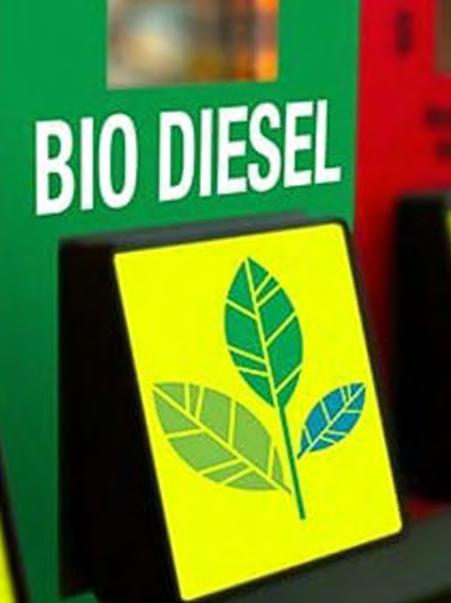
Recently, Representatives Mike Carey (R-OH), Claudia Tenney (R-NY), Annie Kuster (D-NH) and Mariannette MillerMeeks (R-IA) introduced the “Biodiesel Tax Credit Extension Act of 2024,” (H.R. 9060), which aims to extend the $1 per gallon biodiesel blender’s tax credit through 2025. Extending the biodiesel blender’s tax credit is important to energy marketers in order to sell a growing portfolio of affordable, efficient, and environmentally friendly liquid fuels that are helping to reduce emissions while propelling Americans forward and lowering heating fuel costs.
Since 2004, the $1 per gallon biodiesel blender's credit has worked successfully to build a strong incentive for downstream energy marketers to blend renewable fuel into the fuel supply which has lowered prices for motorists and heating fuels for consumers. As a result, the U.S. biodiesel and renewable diesel market has grown from roughly 100 million gallons in 2005 to 4 billion gallons today.
Unfortunately, the Inflation Reduction Act (IRA), which was signed into law in 2022, replaced the biodiesel blender’s tax credit with a new 45Z Clean Fuel Production Credit (CFPC) based on carbon intensity scores. Ethanol, biodiesel, renewable diesel and sustainable aviation fuel (SAF) will all be eligible for the new production tax credit, however, the Department of the Treasury has yet to publish CFPC guidance. Therefore, it is important that Congress acts soon to extend the biodiesel blender’s tax credit to give impacted industries market certainty for at least another year. Depending on the outcome of the November elections, a GOP controlled Congress could reevaluate much of the IRA’s tax credits so stay tuned.

The U.S. District Court for the Eastern District of Texas issued its ruling which permanently blocks the Biden Administration rule - invalidating the entirety of the Department of Labor (DOL)’s overtime final rule. In his ruling, Judge Jordan stated that while DOL has the authority to define and delimit the terms of the overtime exemption, “that authority ‘is not unbounded,’” that the ruling improperly bases eligibility for overtime pay on workers' wages rather than their job duties.
U.S. District Judge Sean Jordan explained, "the minimum salary level imposed by the 2024 Rule 'effectively eliminates' consideration of whether an employee performs 'bona fide executive, administrative, or professional capacity’ duties in favor of what amounts to a salary-only test.” He also said that the Department’s automatic updates to the minimum salary threshold every three years "violates the notice-and-comment rulemaking requirements of the [Administrative Procedure Act].”
Jordan, who was appointed by Republican President-elect Donald Trump in his first term, struck down
the rule after saying in June that it was probably invalid and temporarily blocking it from being applied to Texas state employees.
The rule would have required employers to pay overtime premiums to salaried workers who earn less than $58,600 per year, when they work more than 40 hours in a week, beginning Jan. 1, 2025, and it had temporarily raised the threshold to about $44,000 per year on July 1.
Because of today’s decision, the minimum salary threshold which increased in July is once again set to $35,568, and the threshold for highly compensated employees is set to $107,432.
Although DOL may appeal the decision to the 5th Circuit, under the new Administration, DOL will almost certainly abandon its defense of the rule. Over the next four years, it may choose to issue its own rulemaking to update the threshold.
